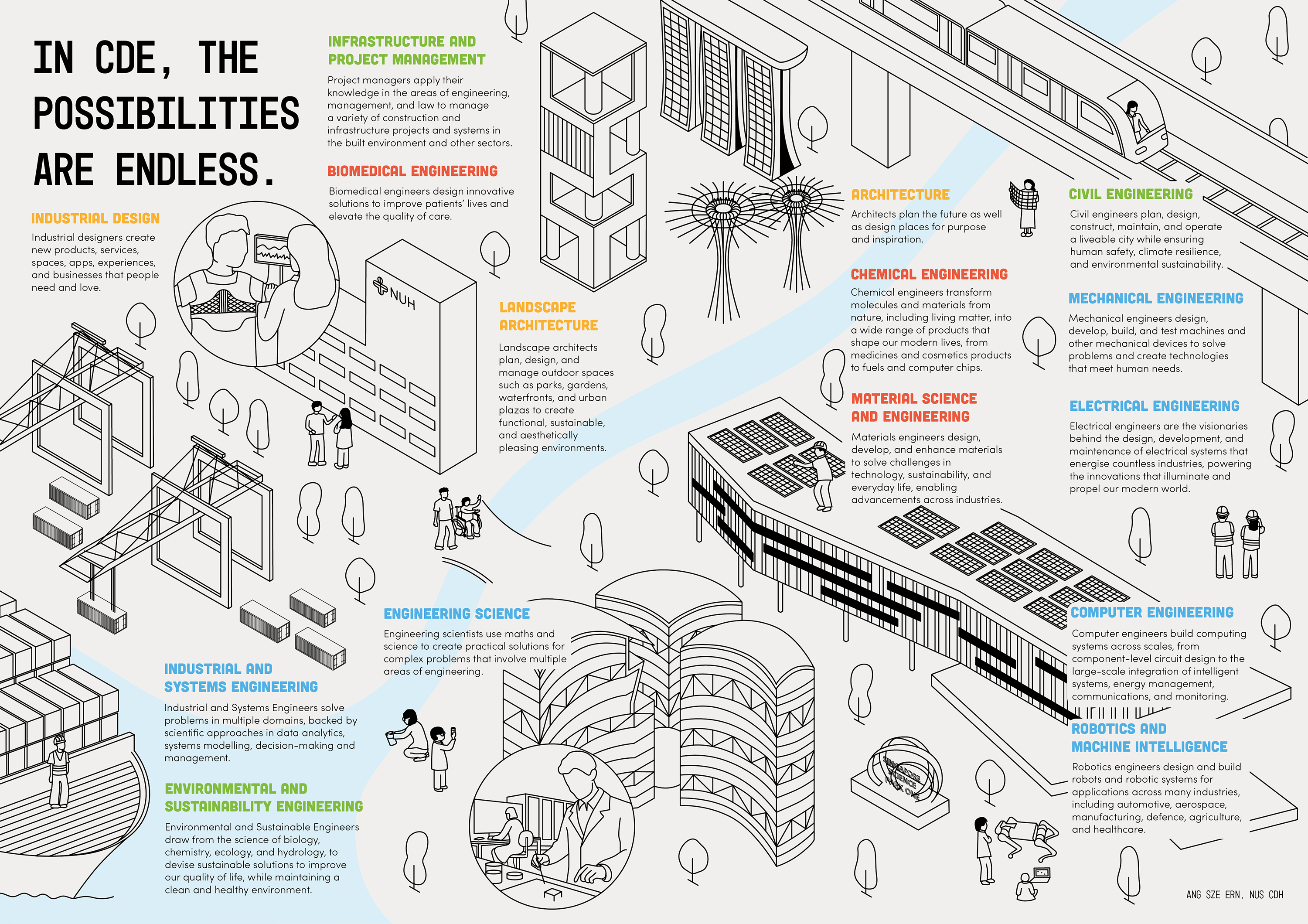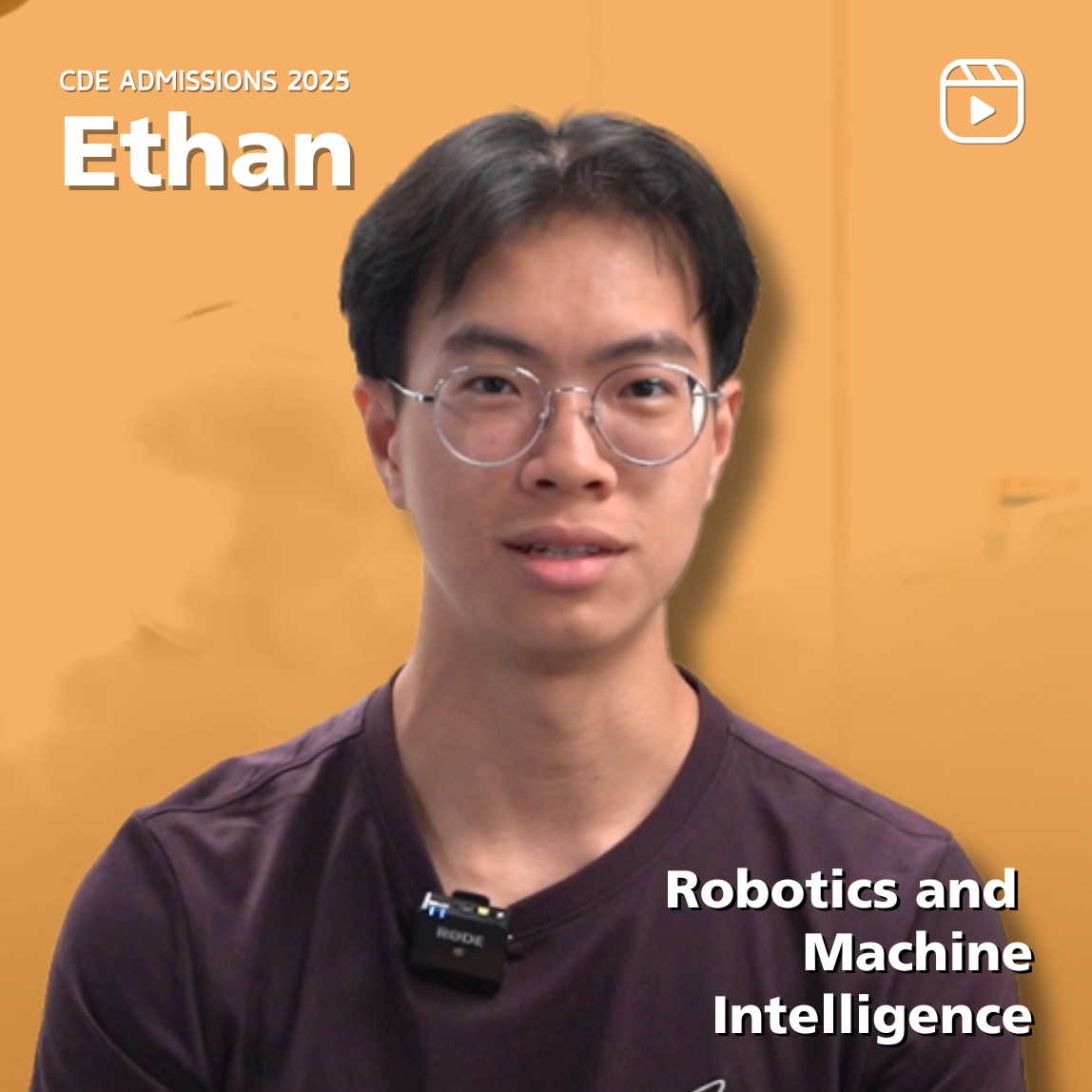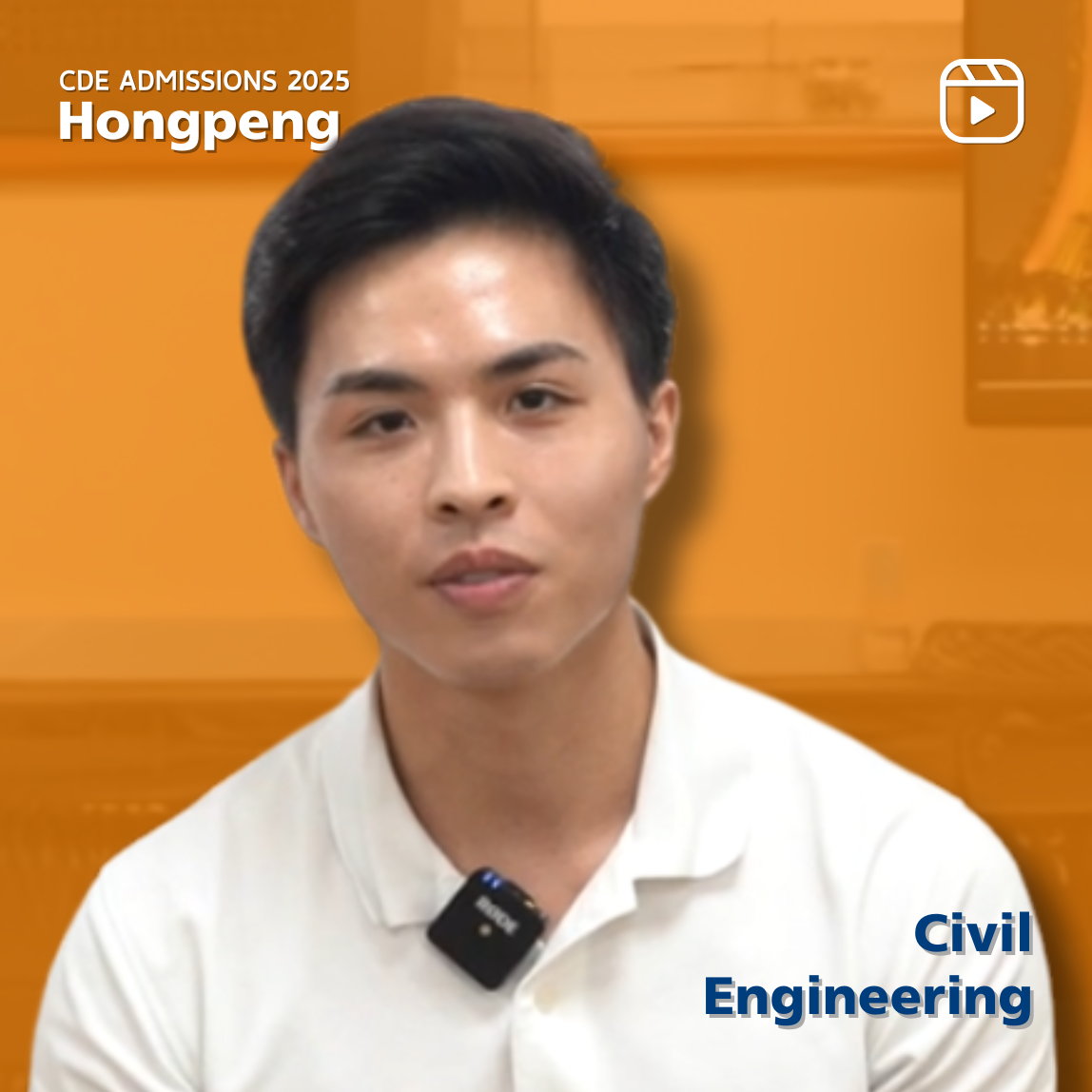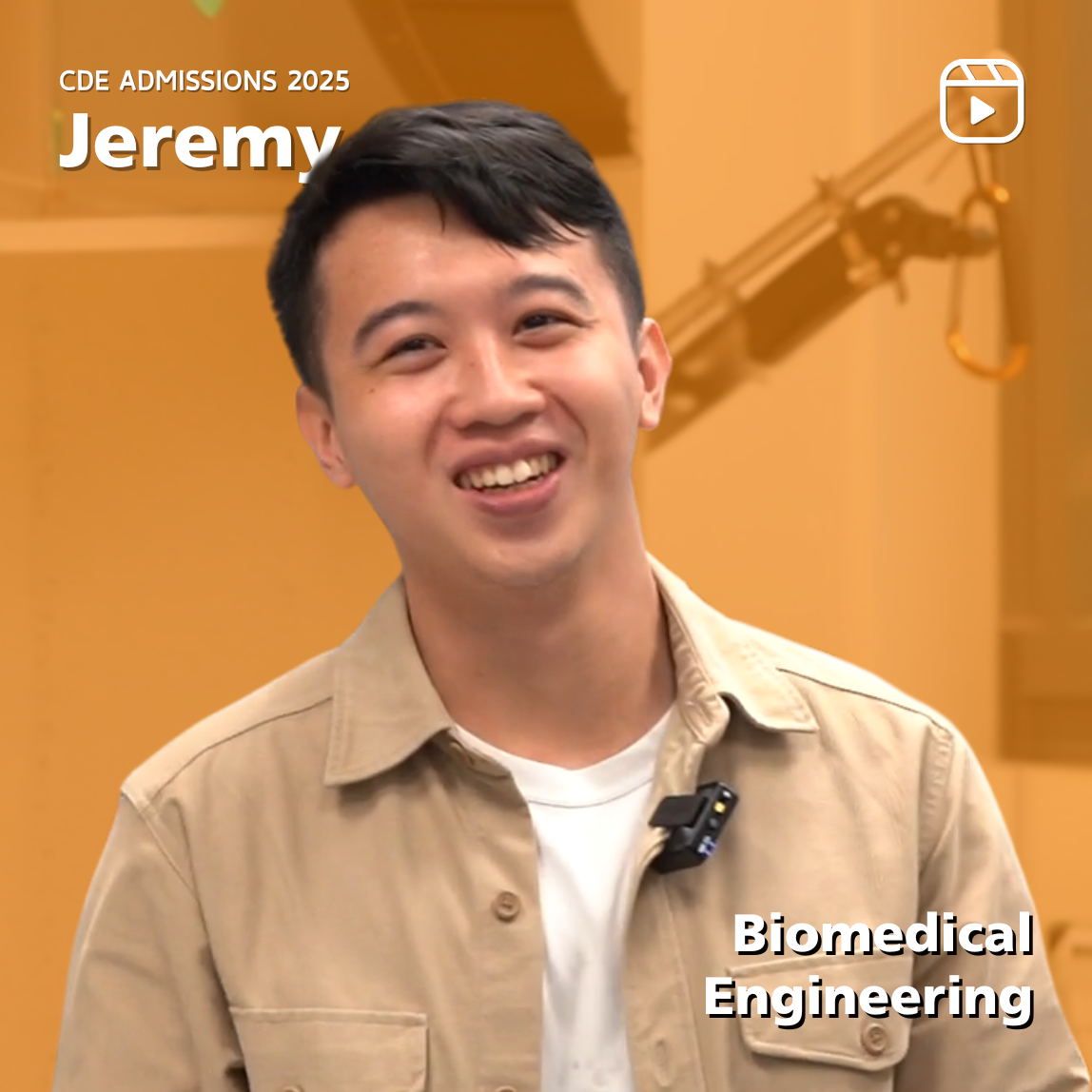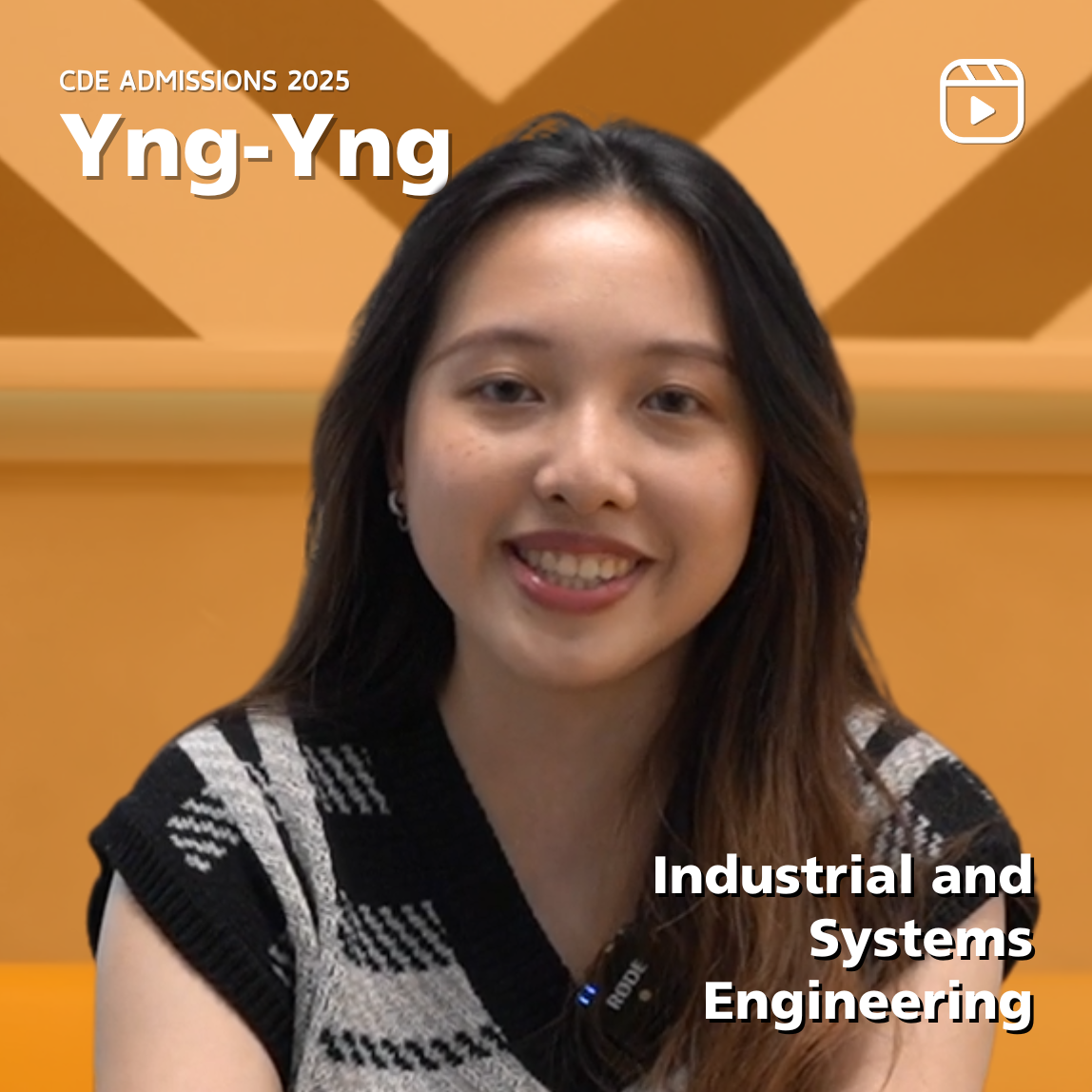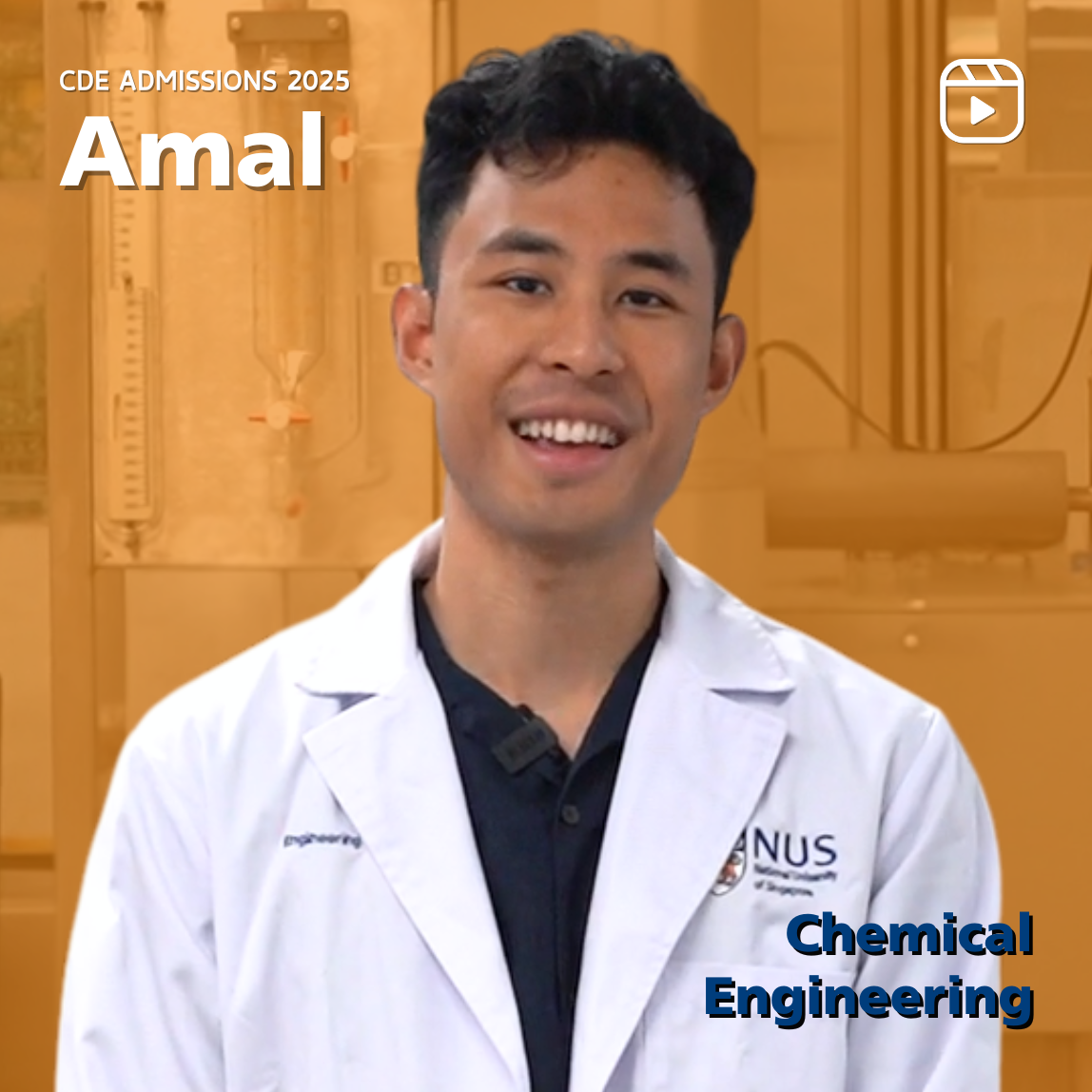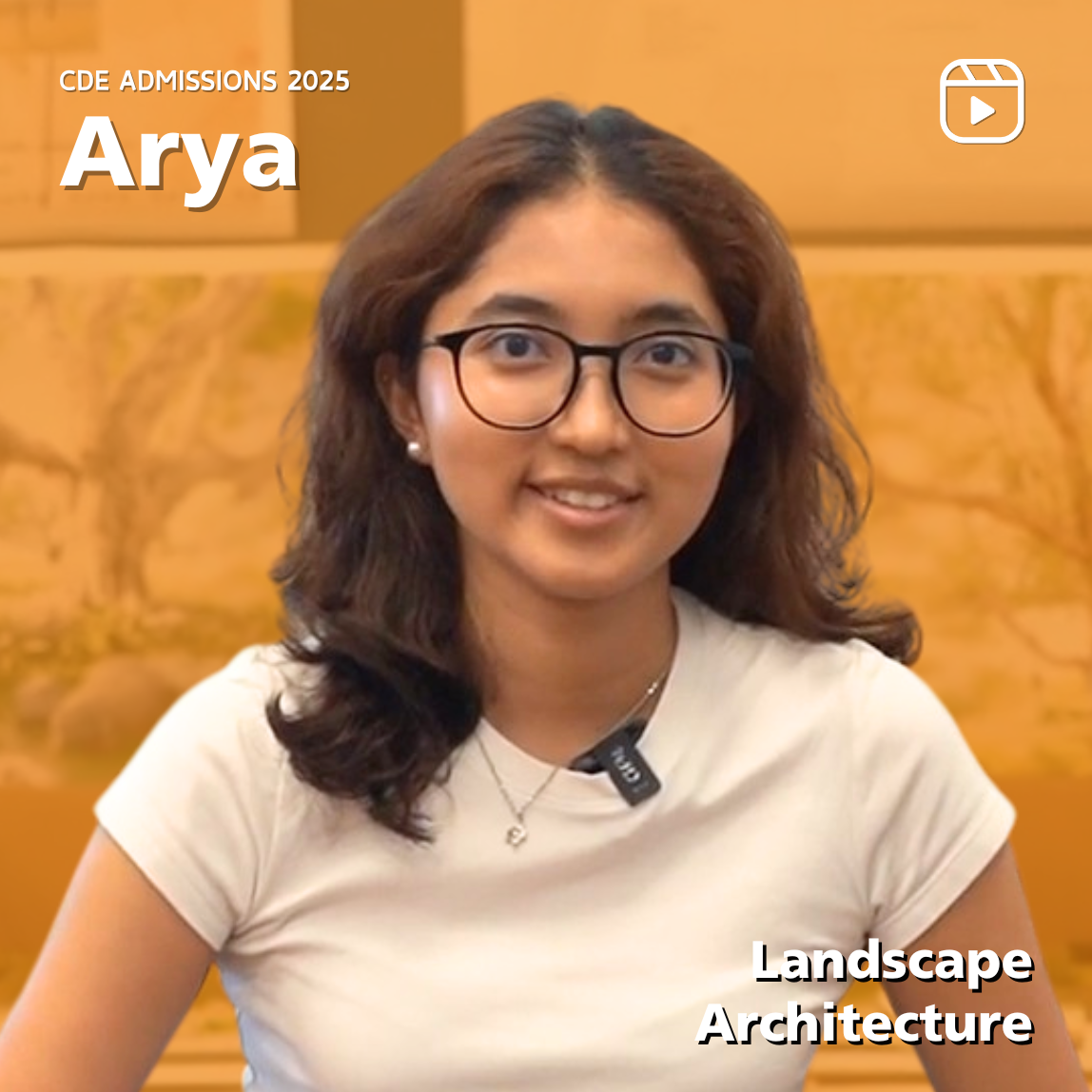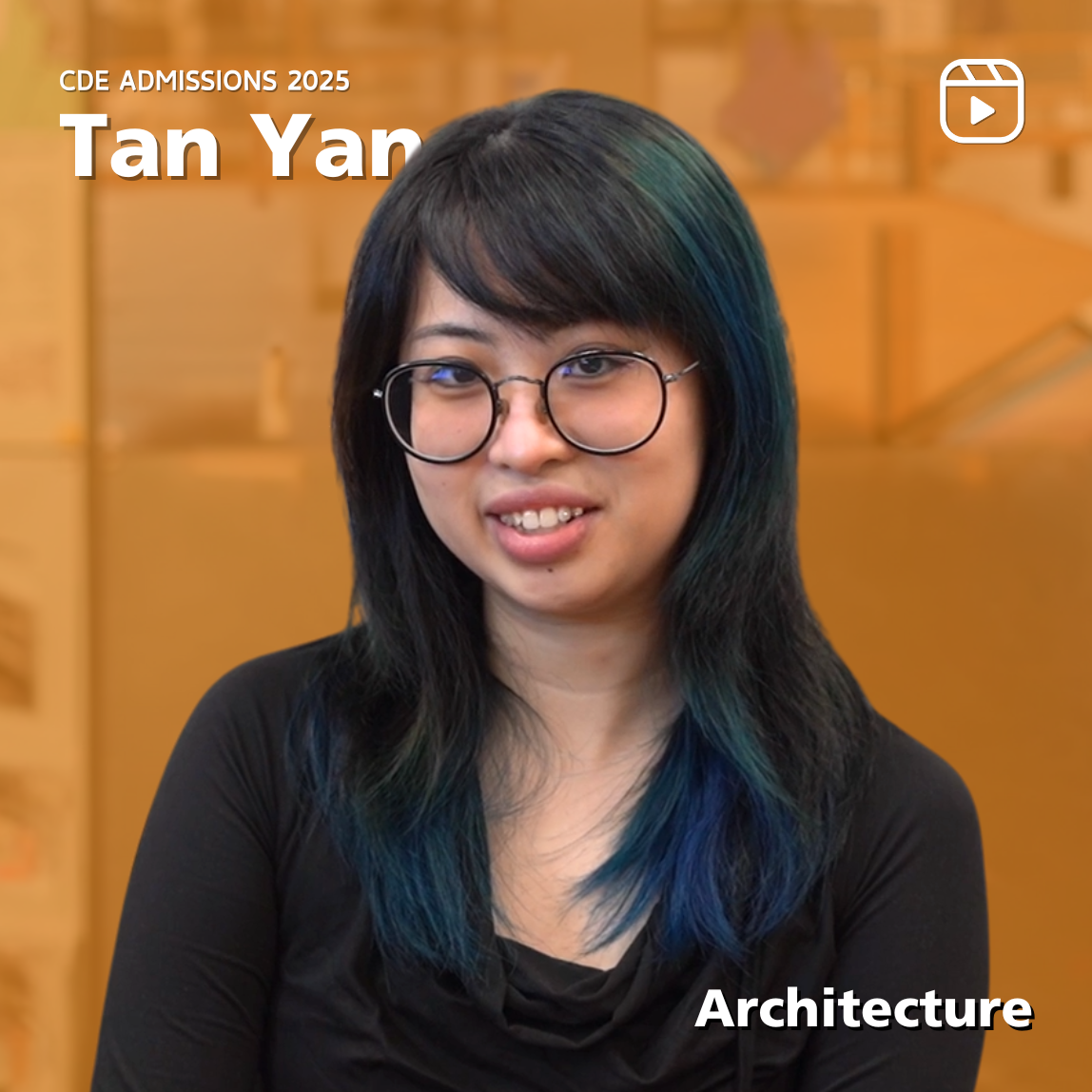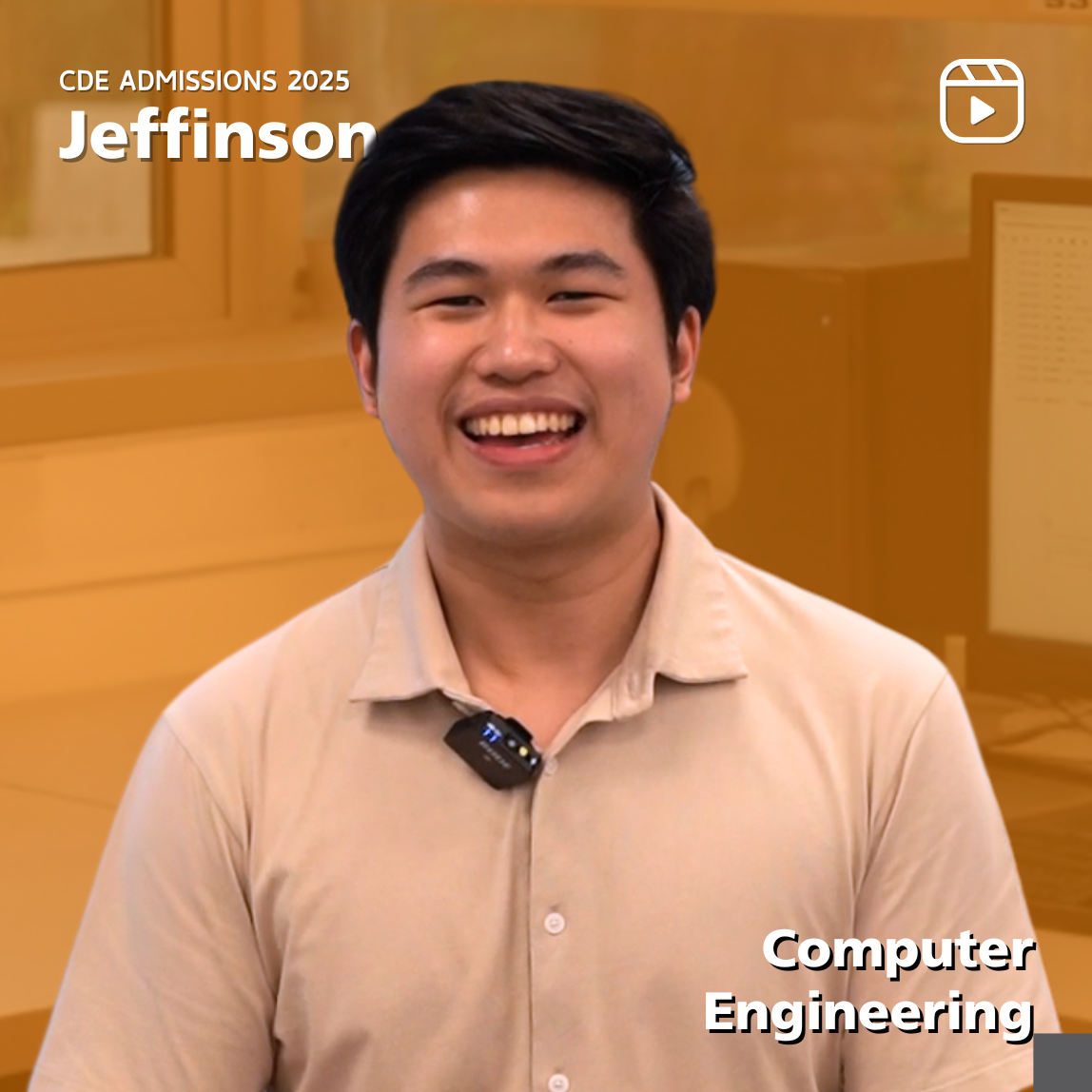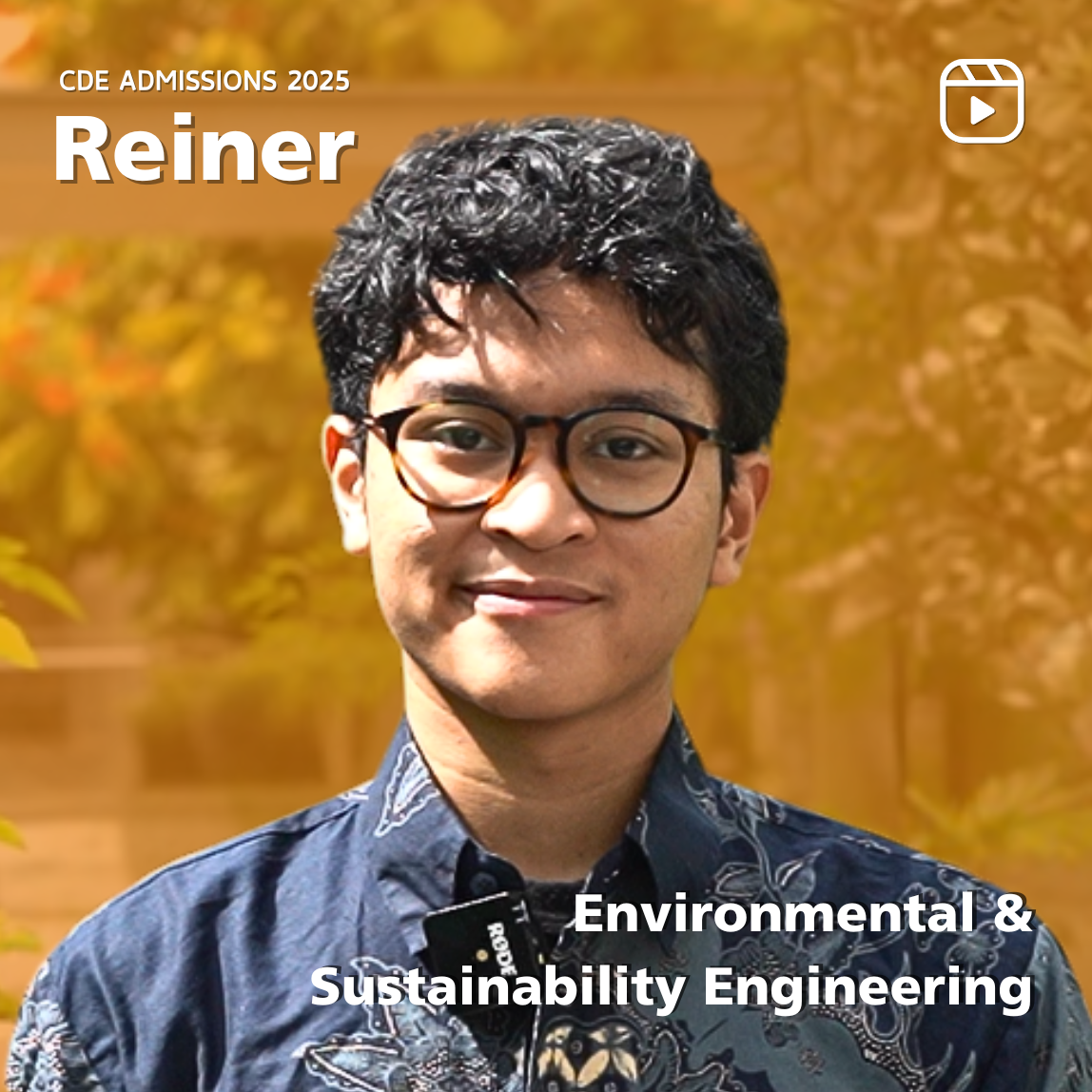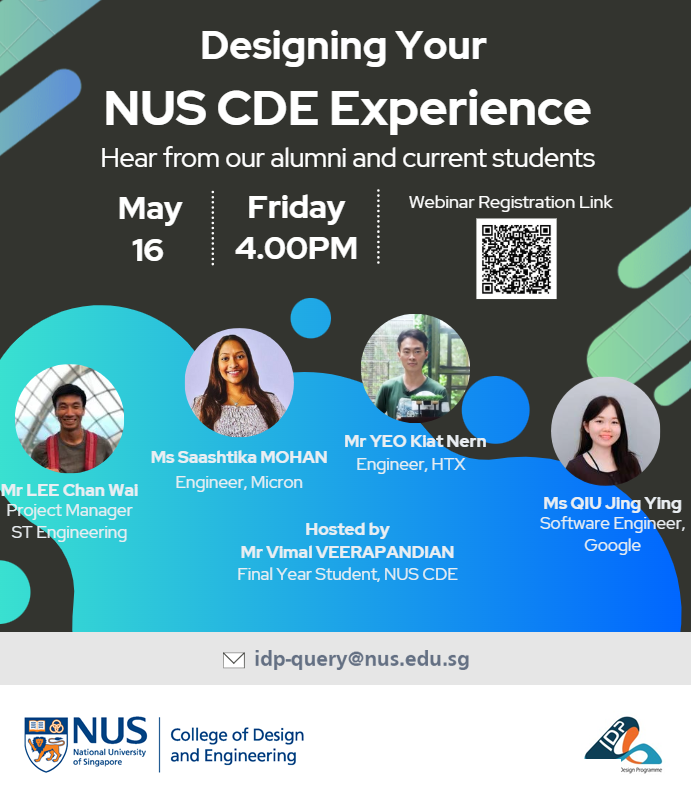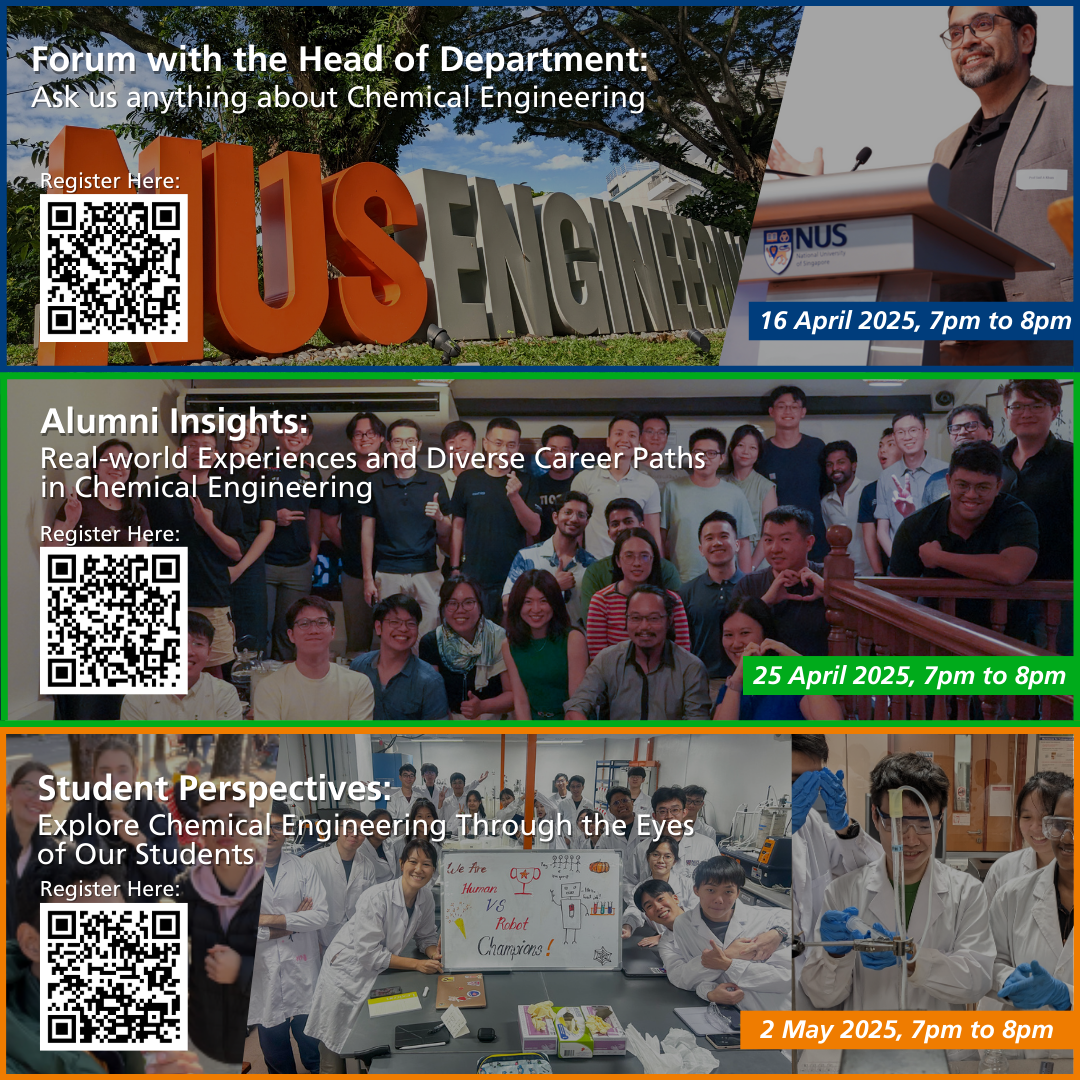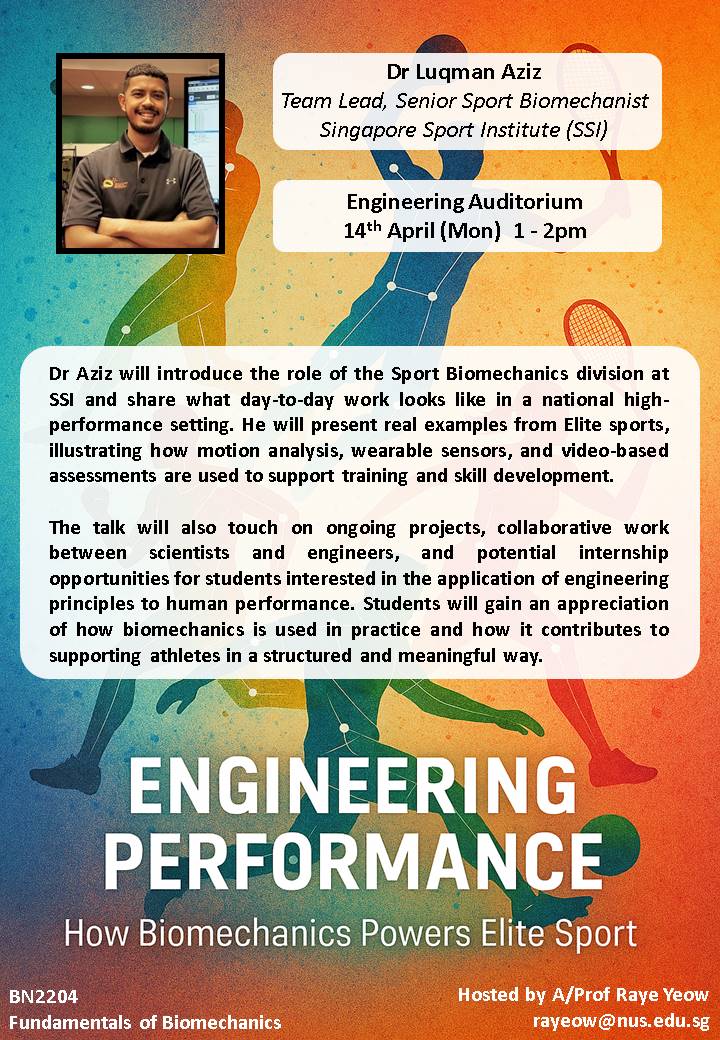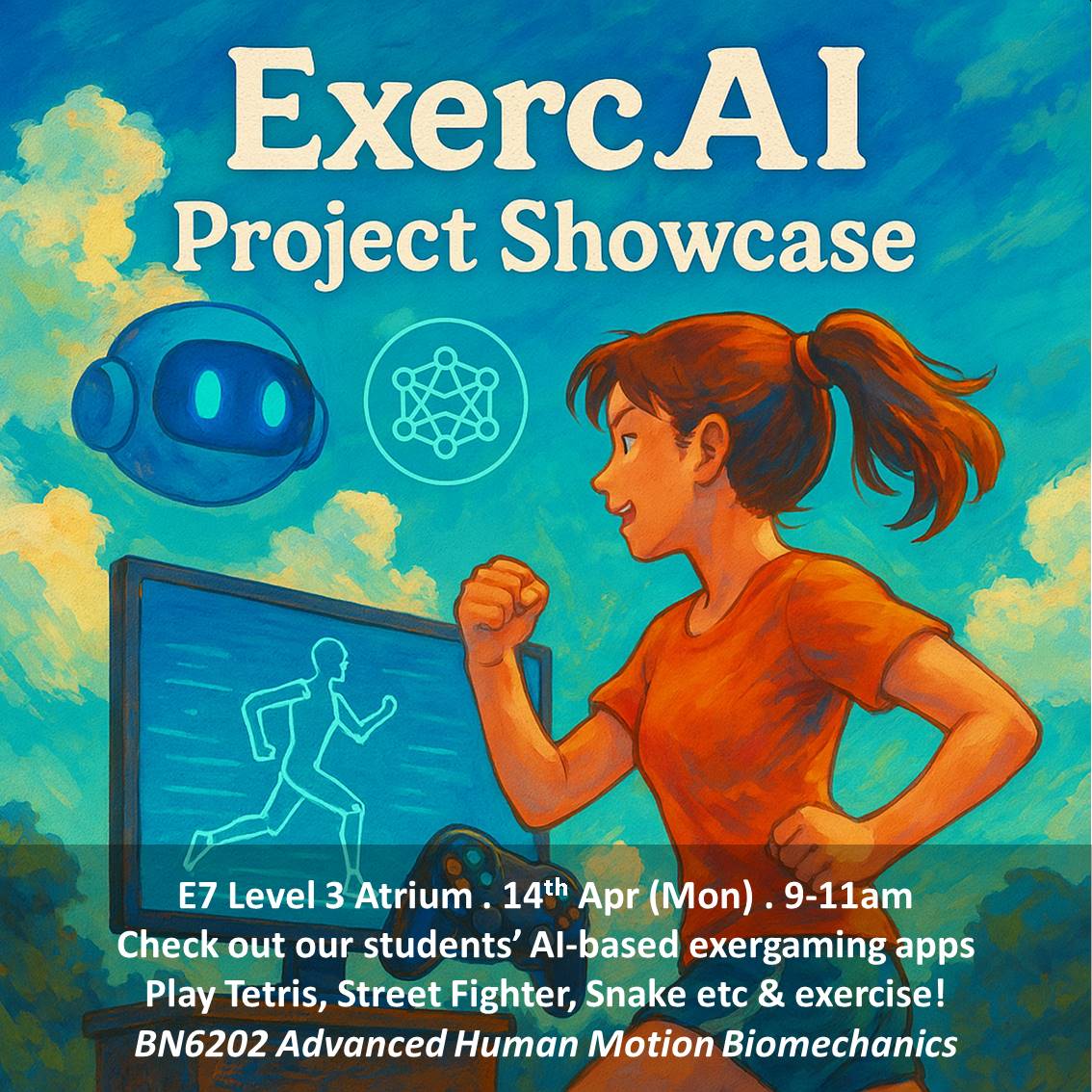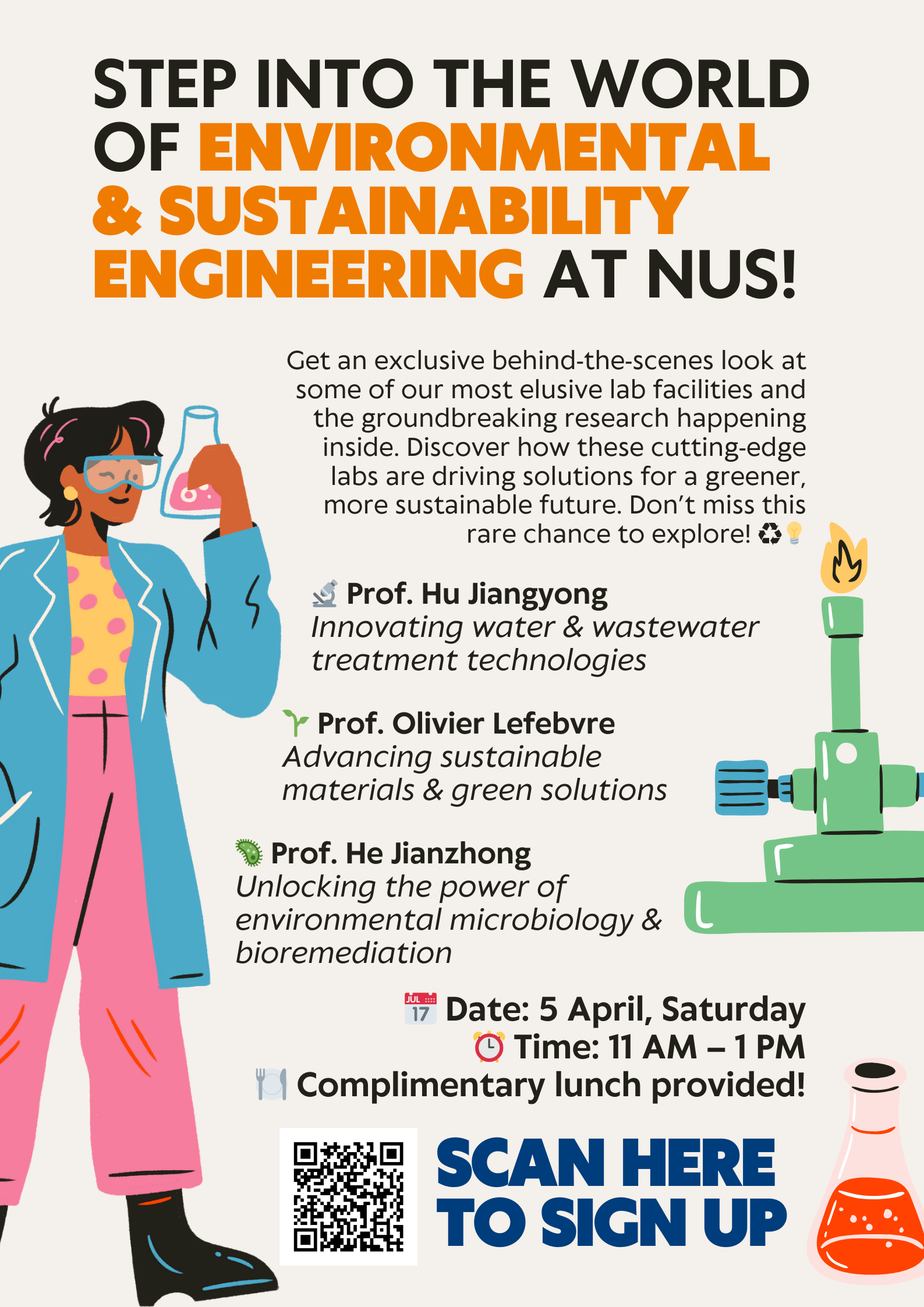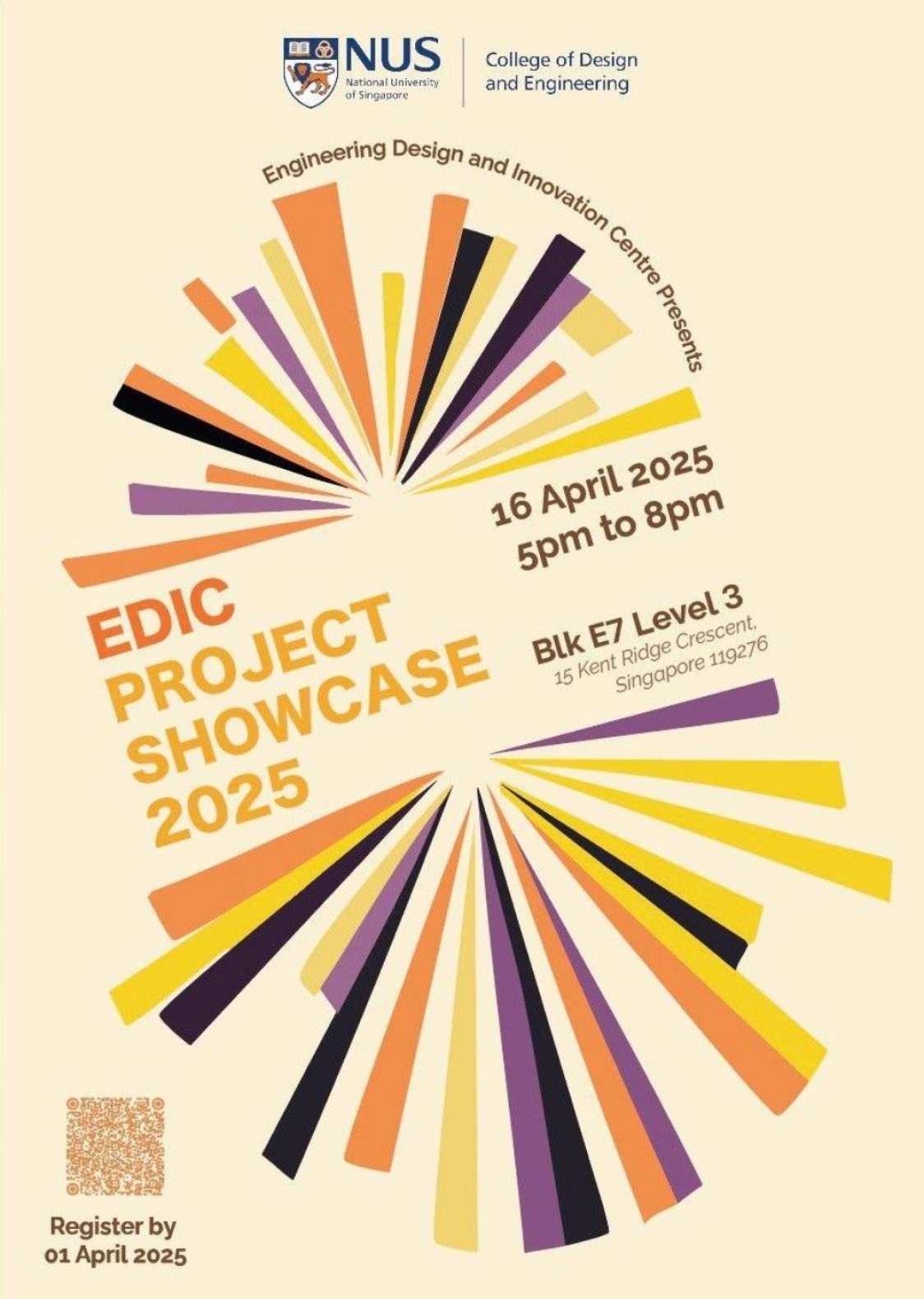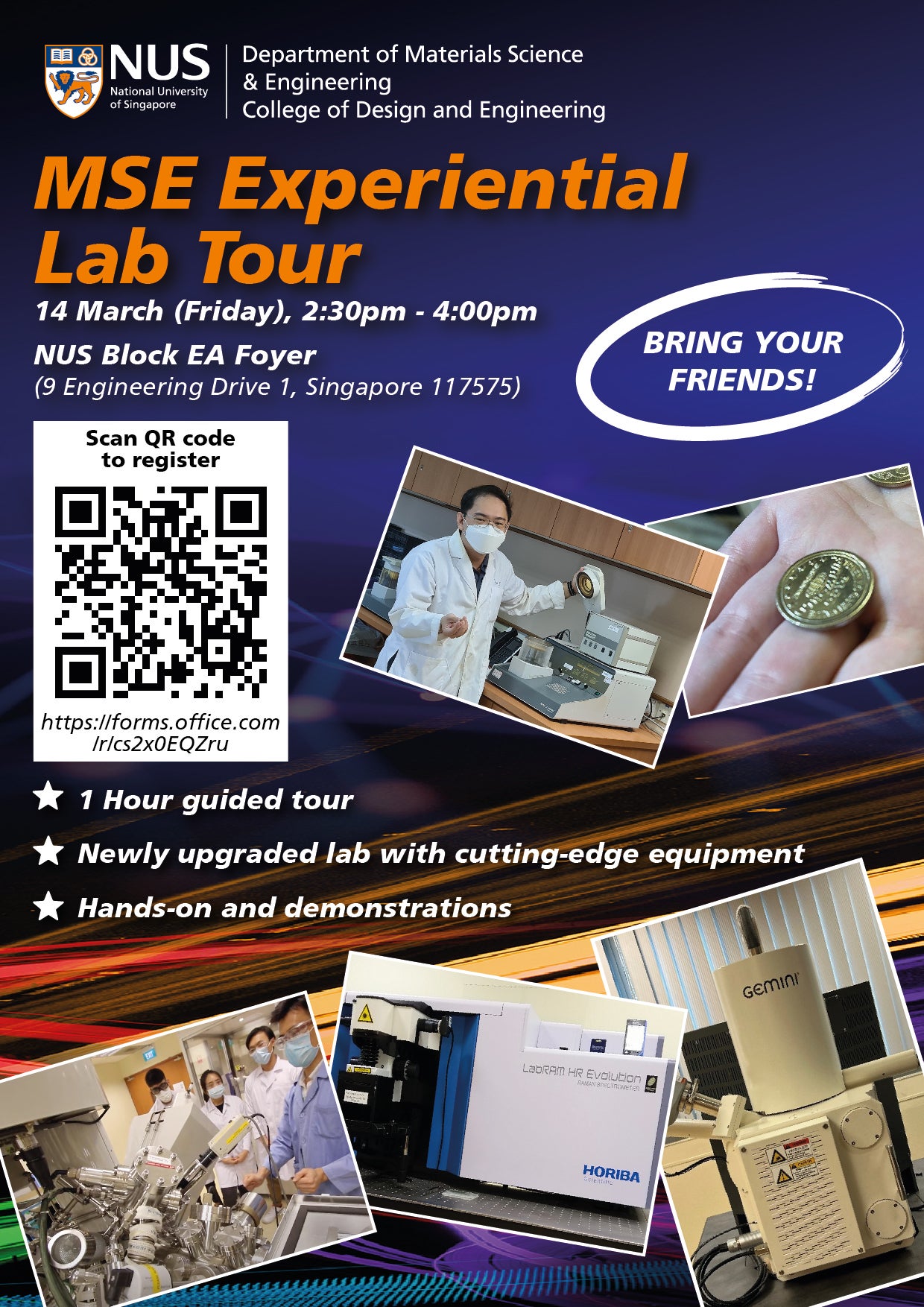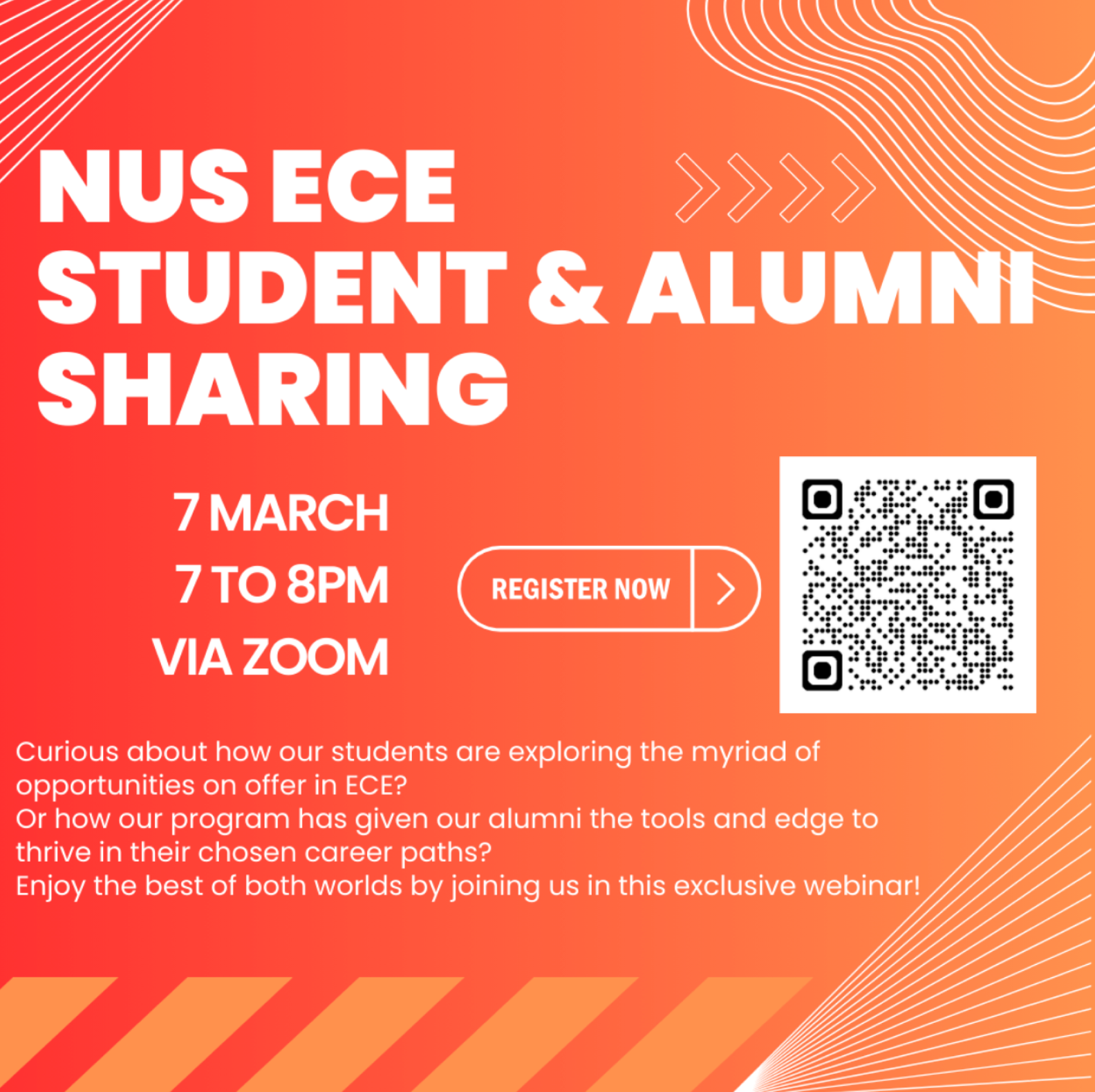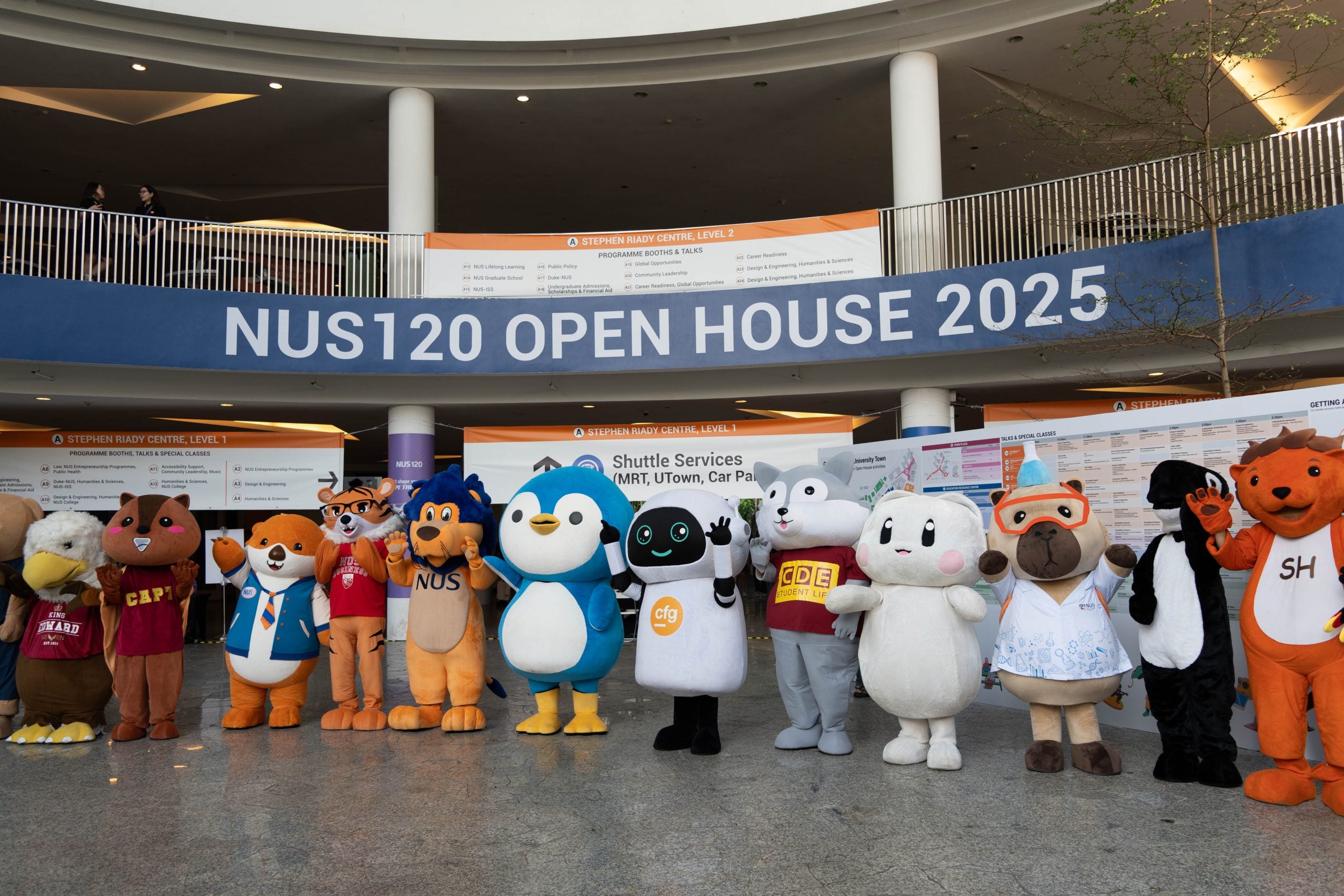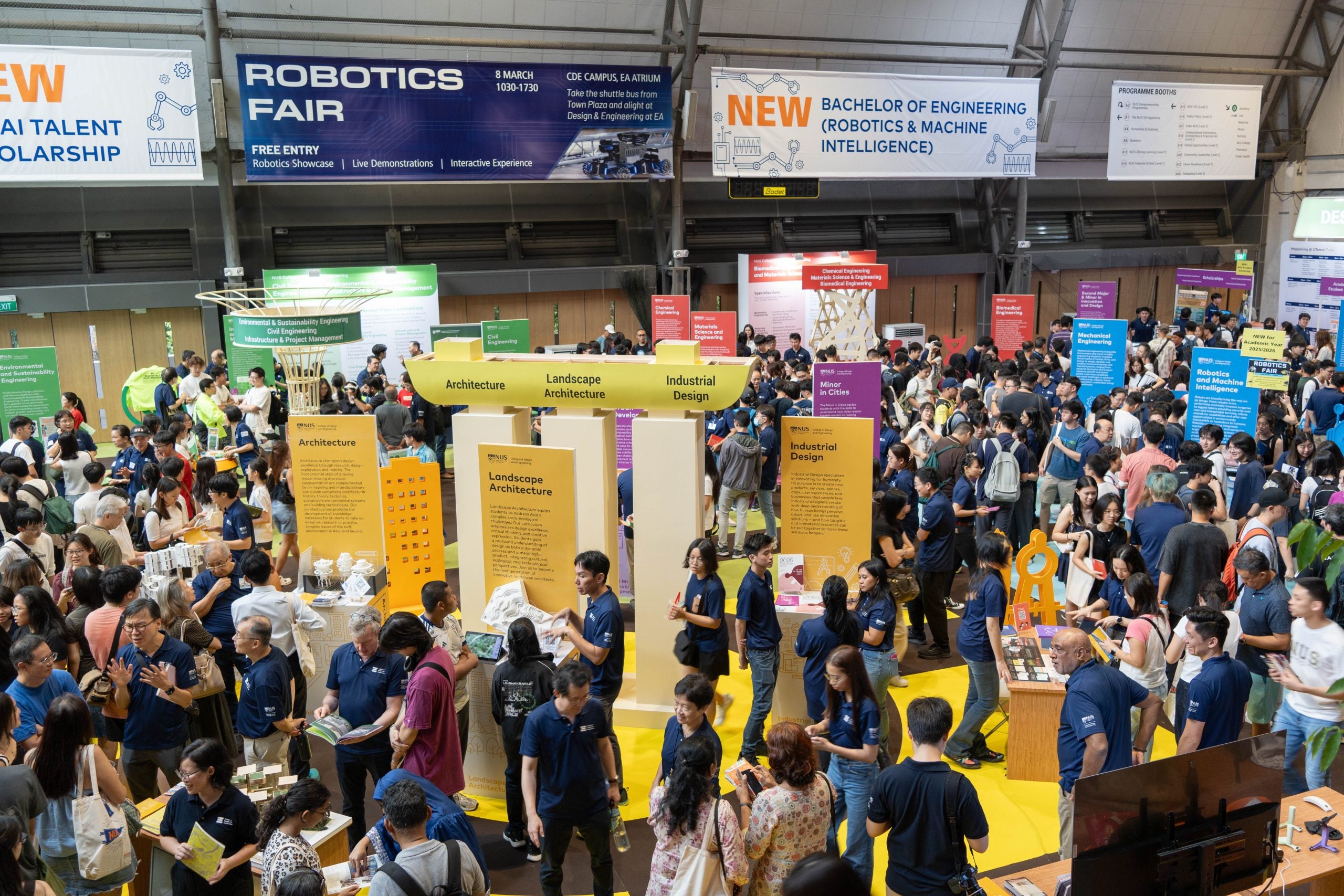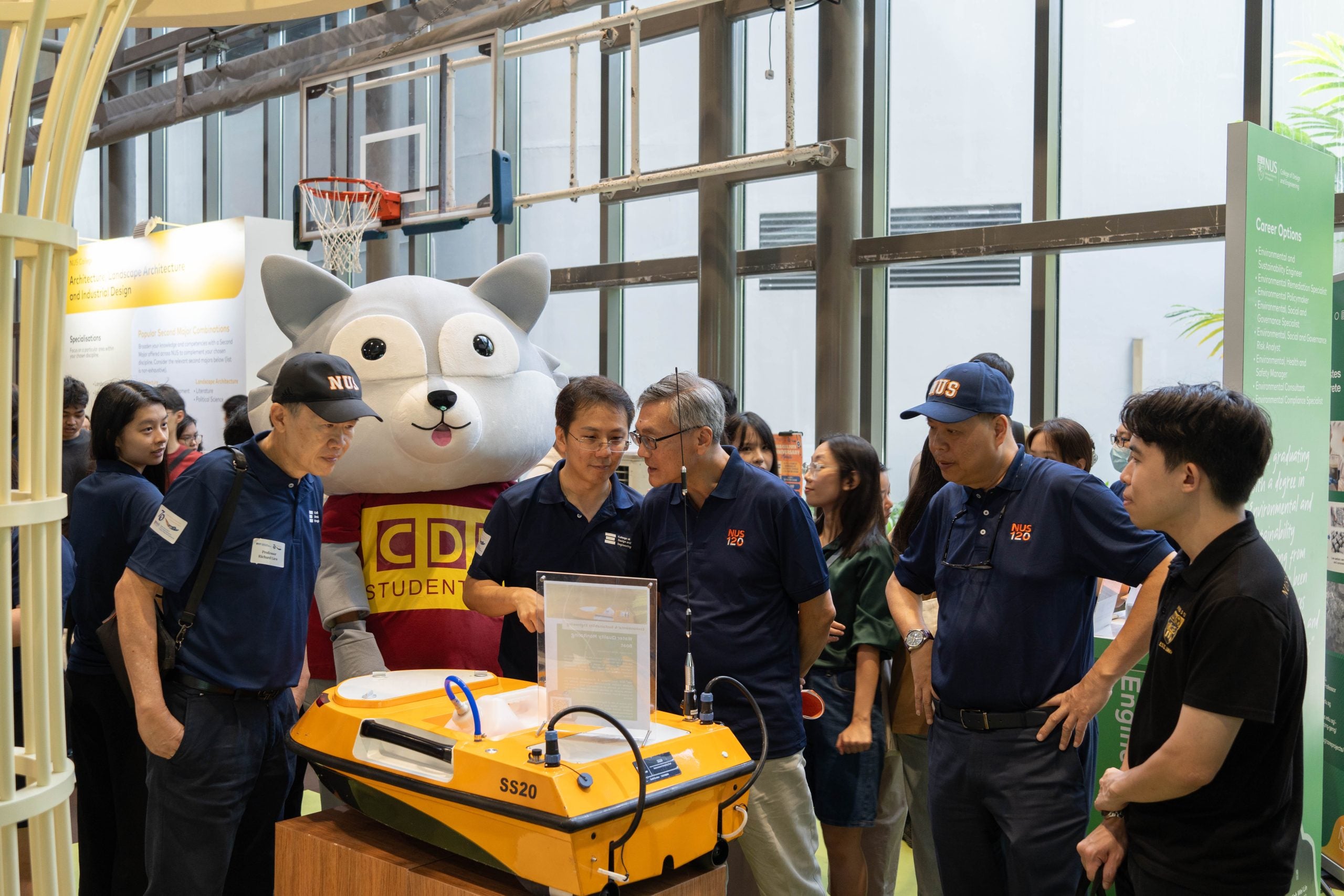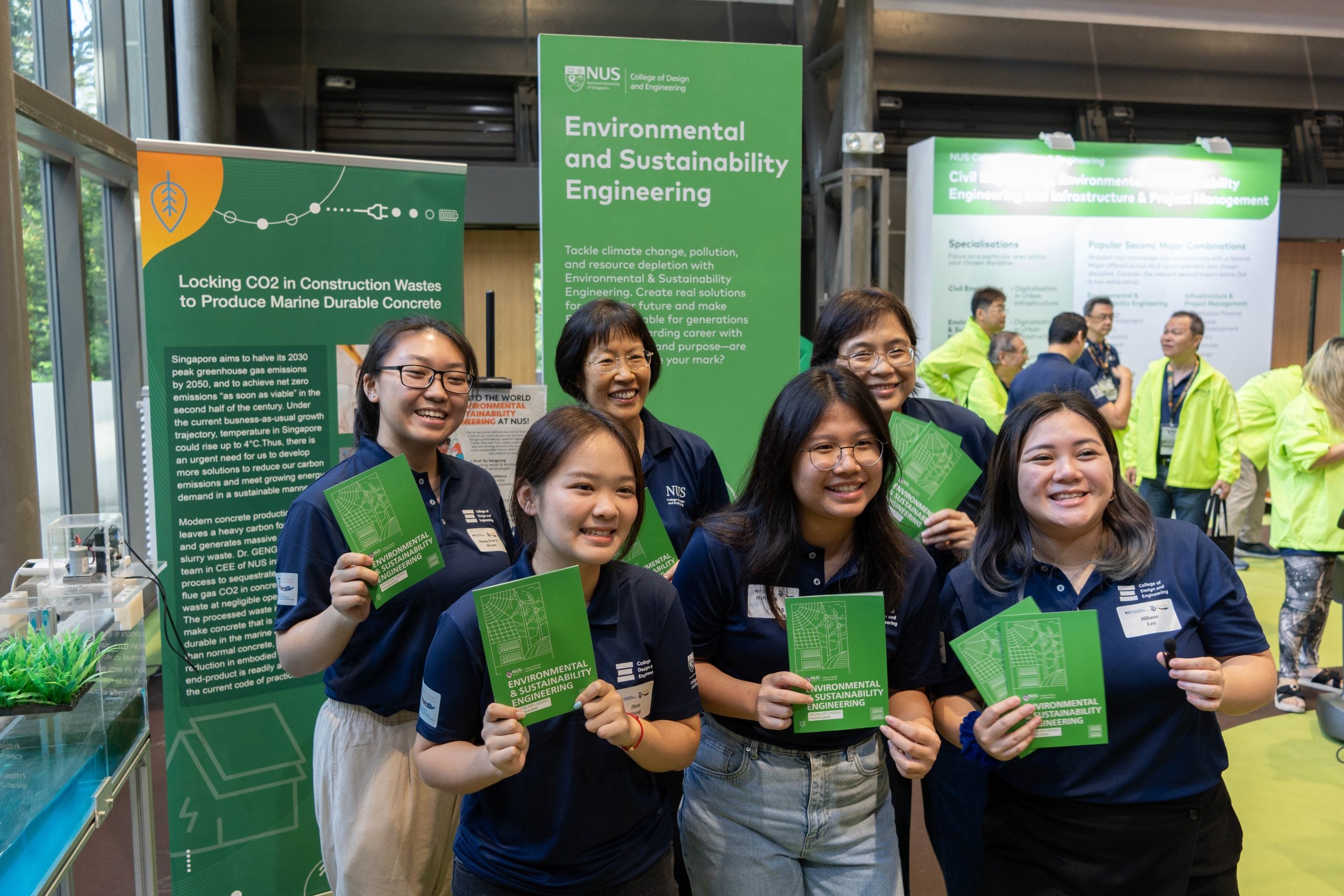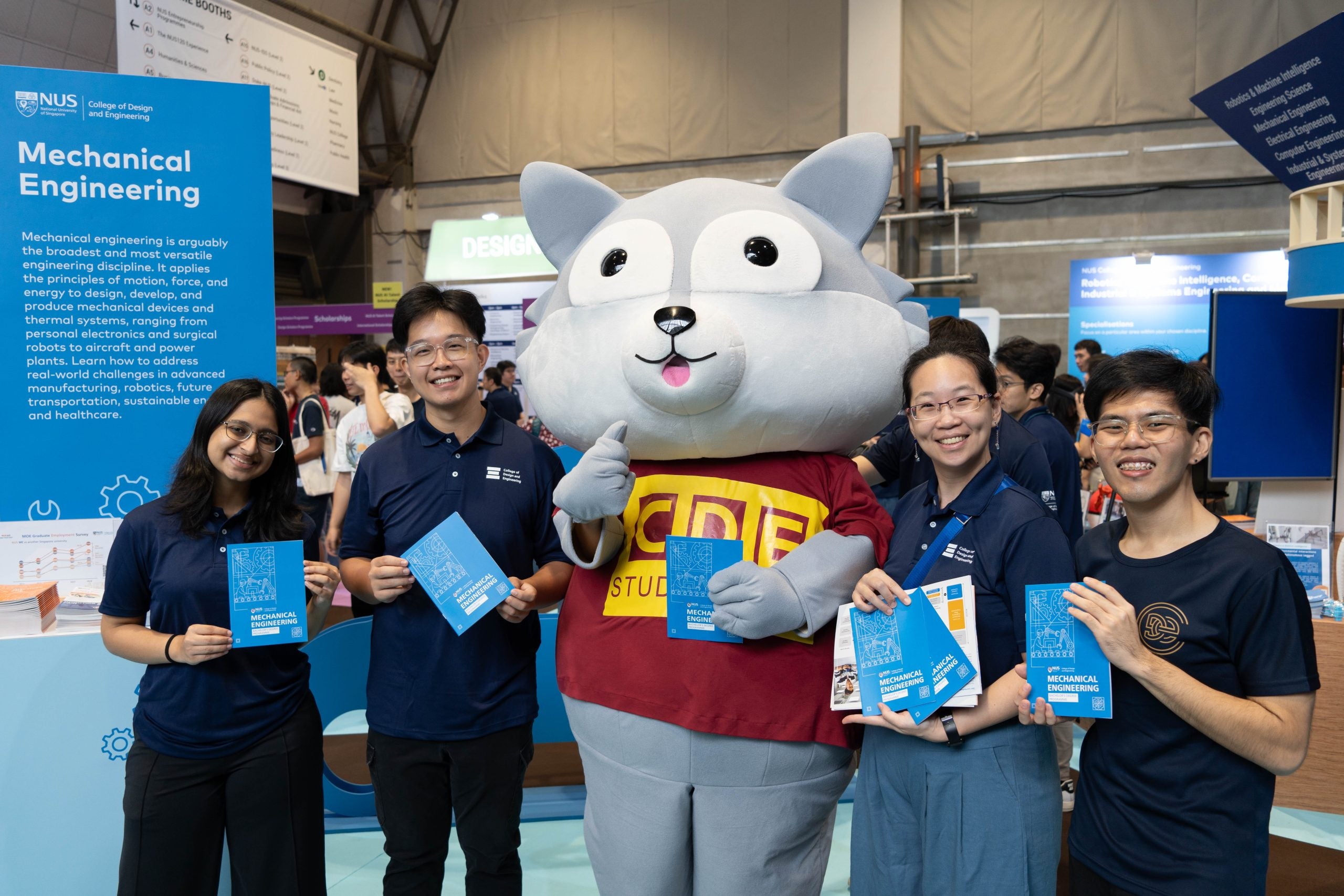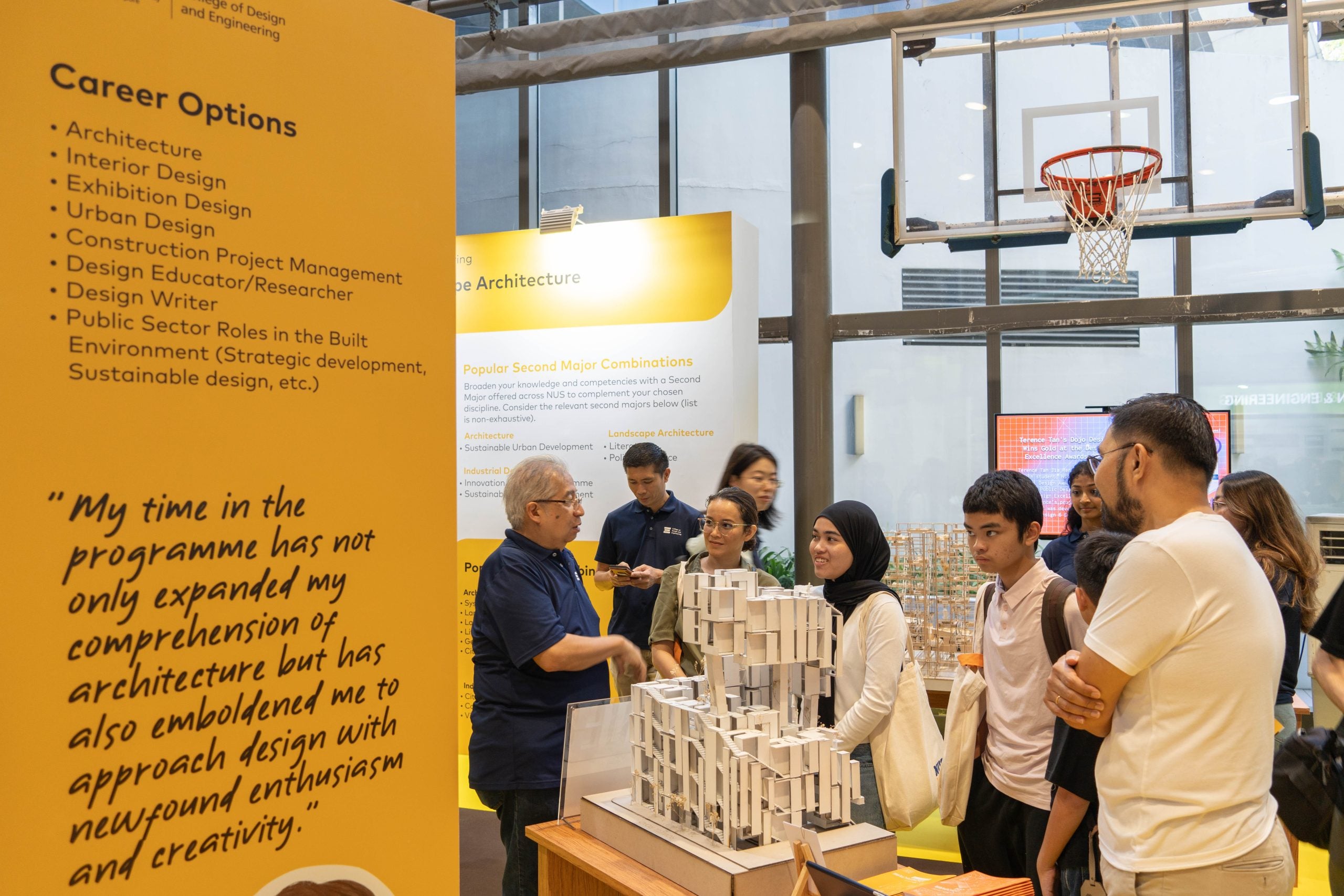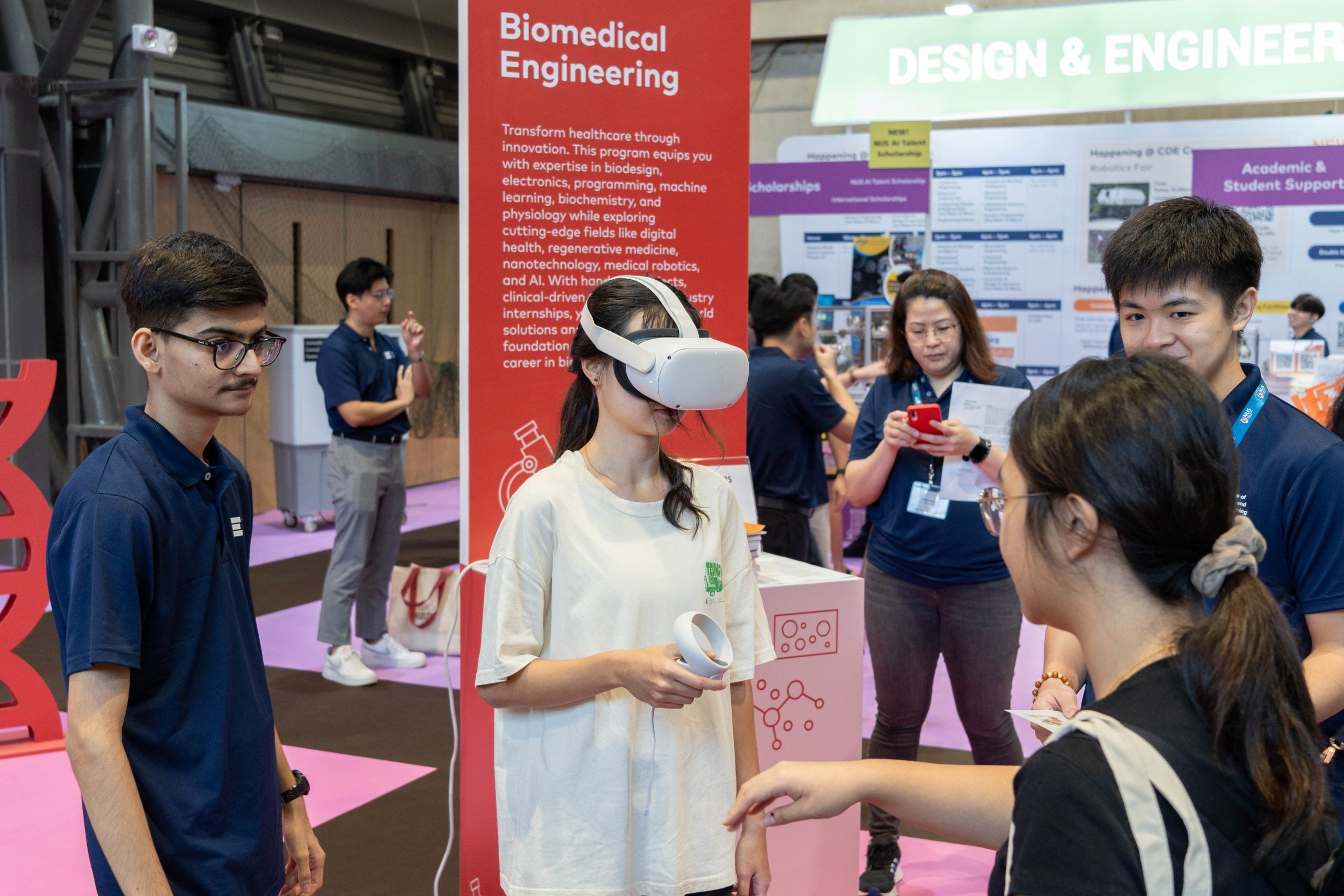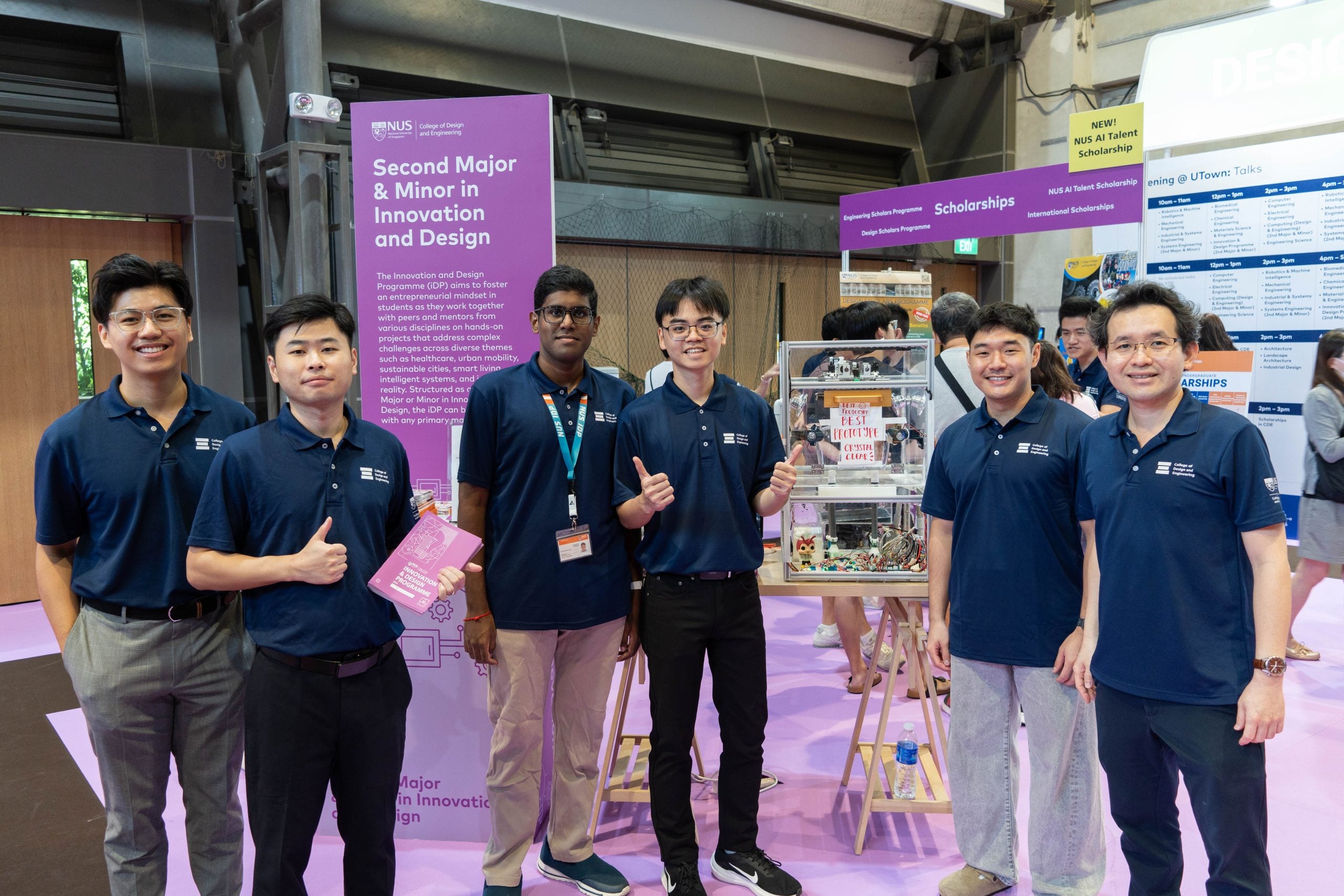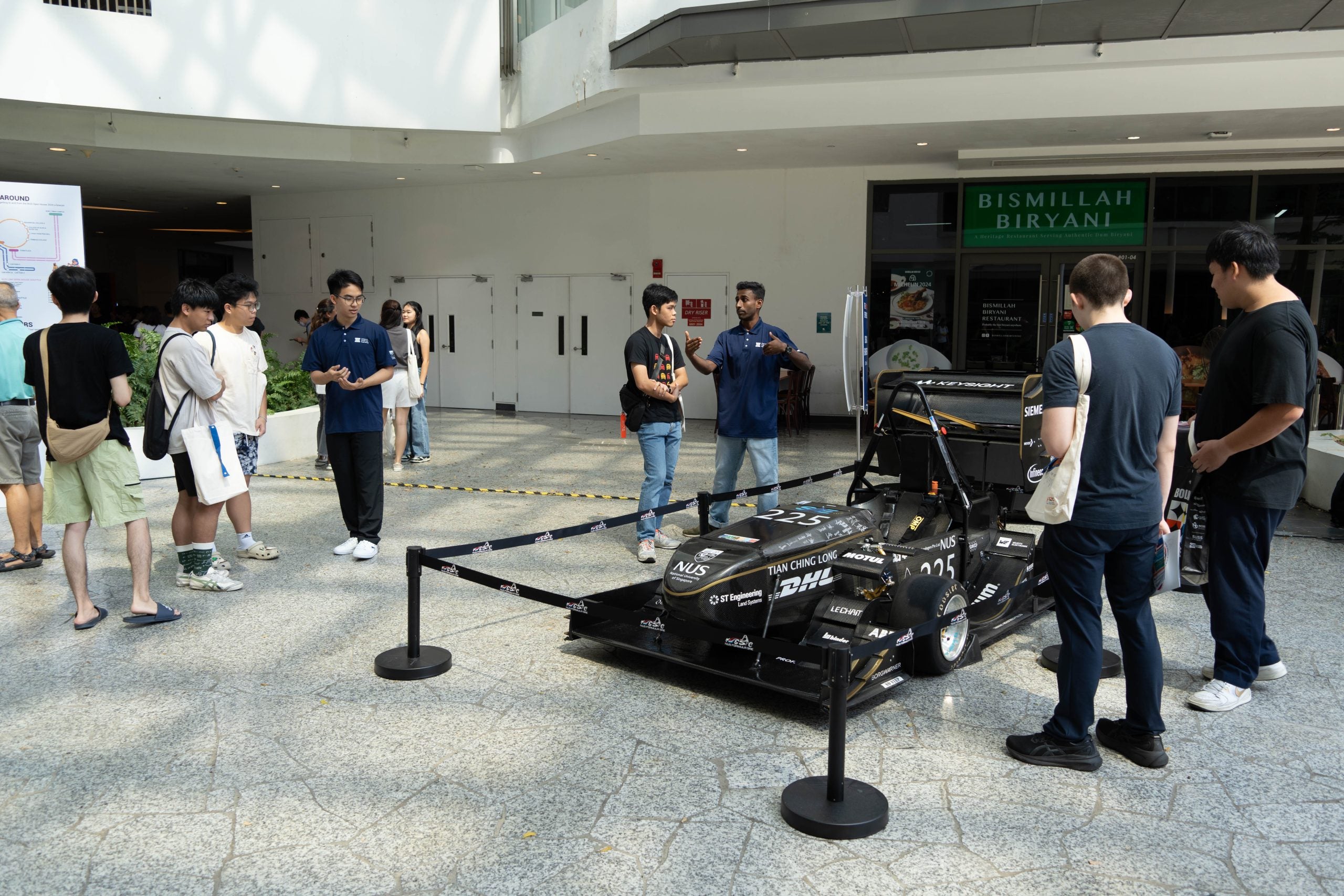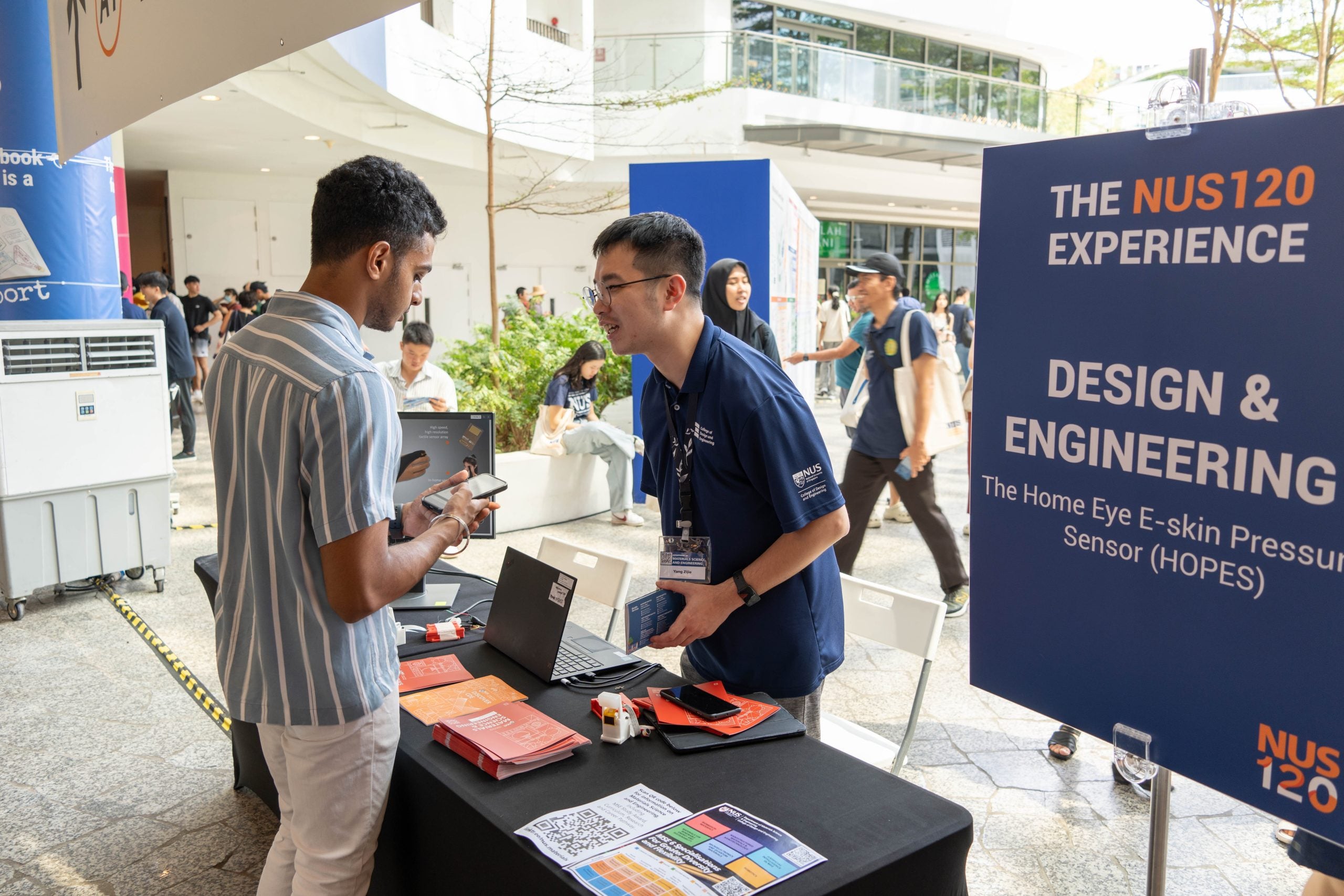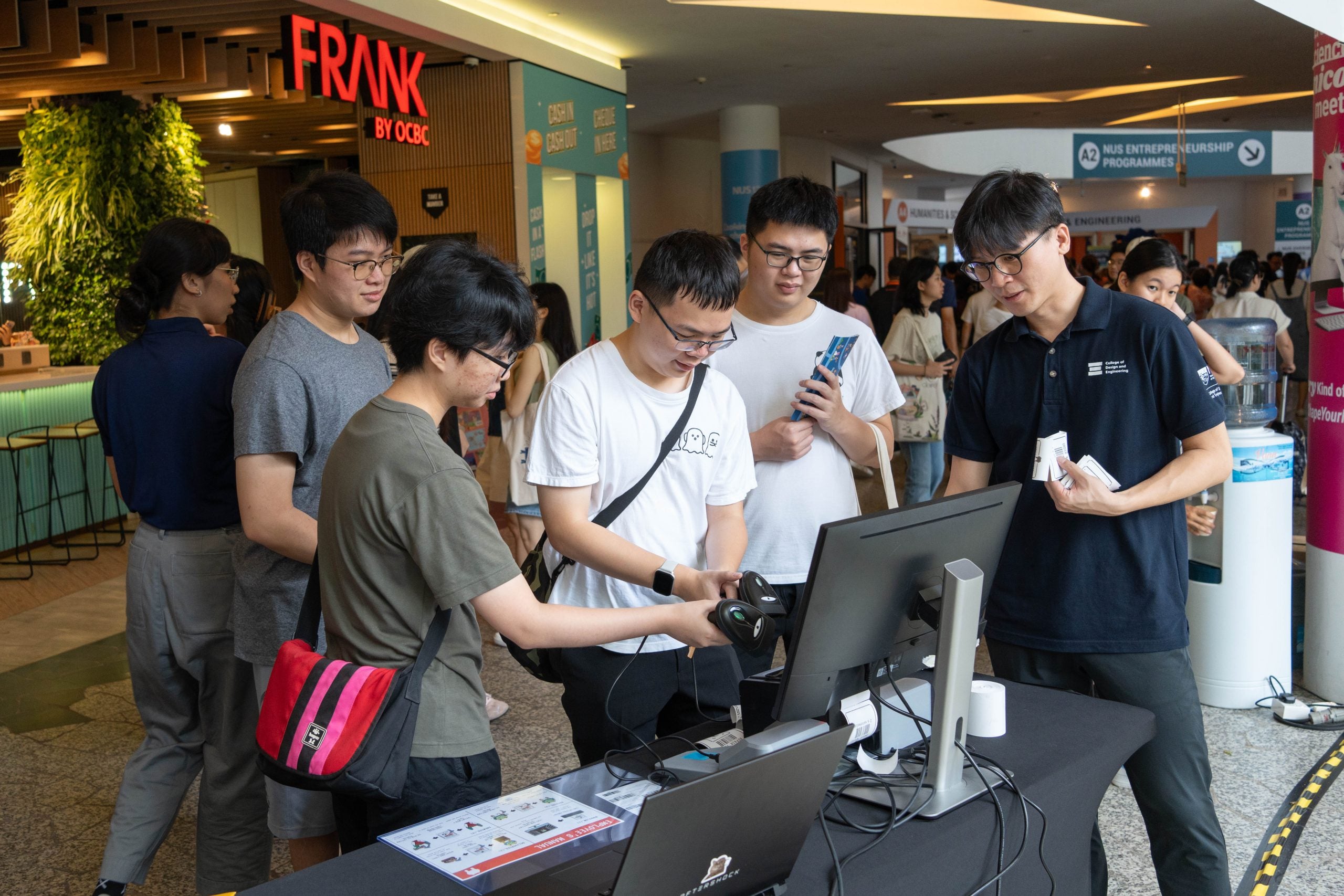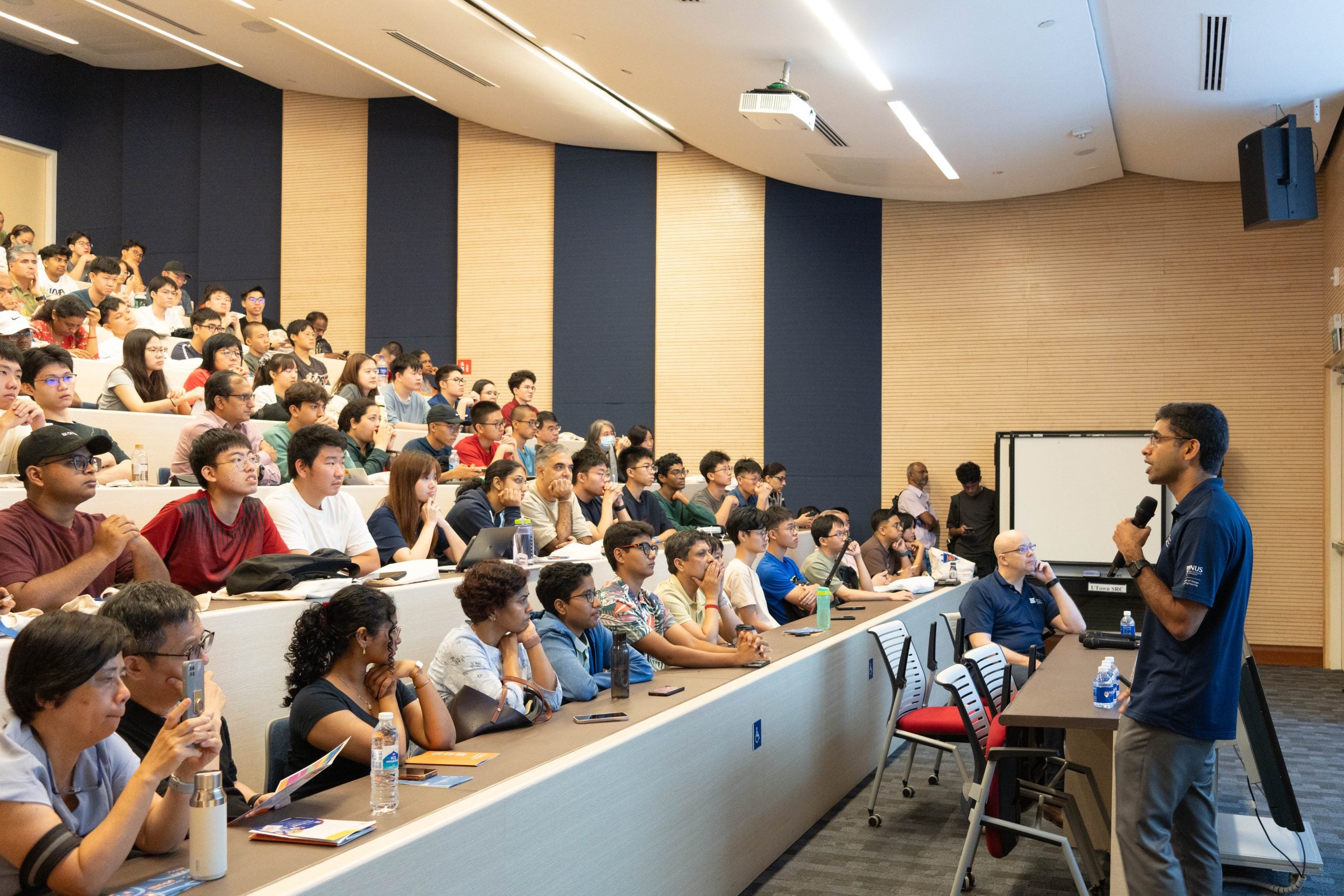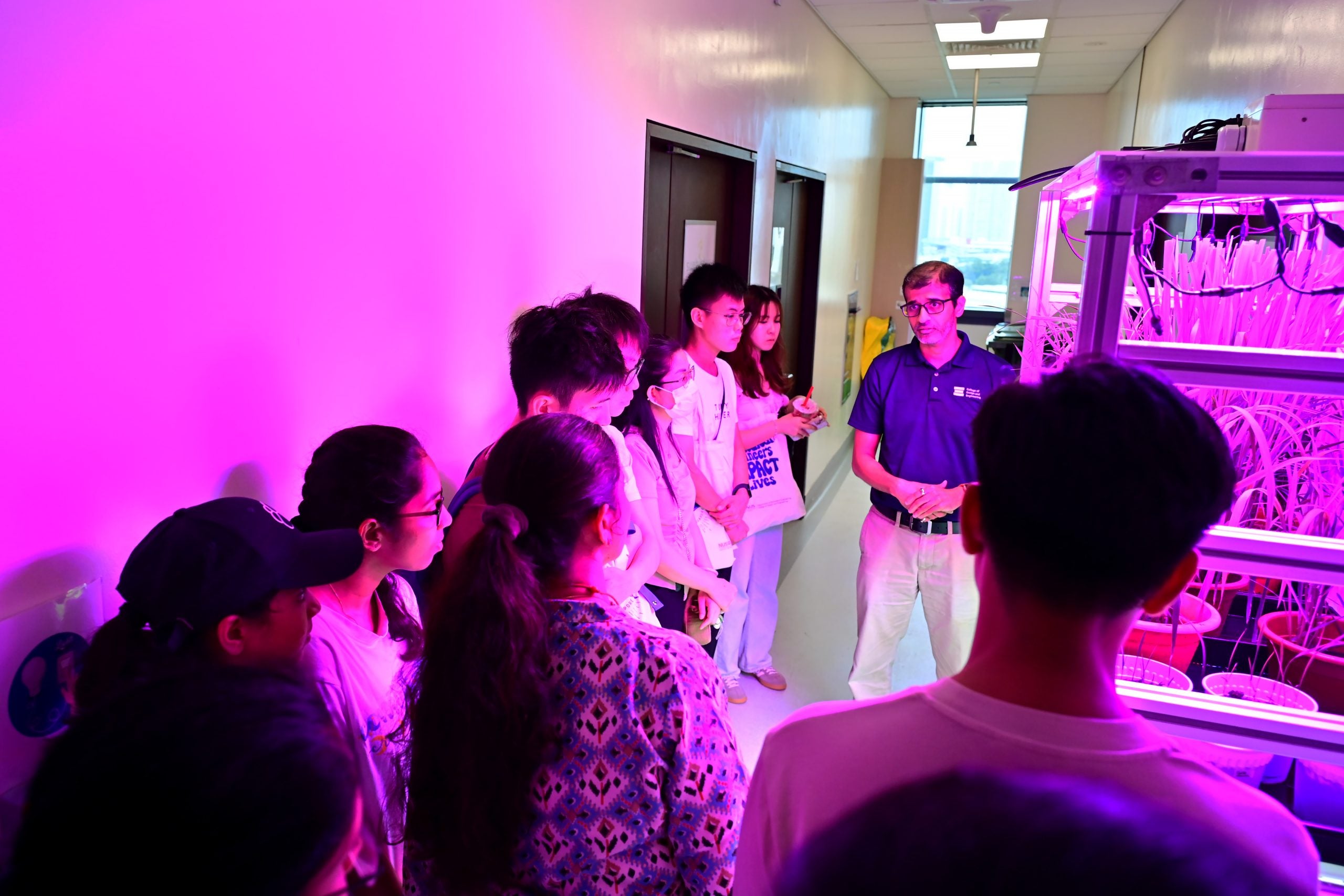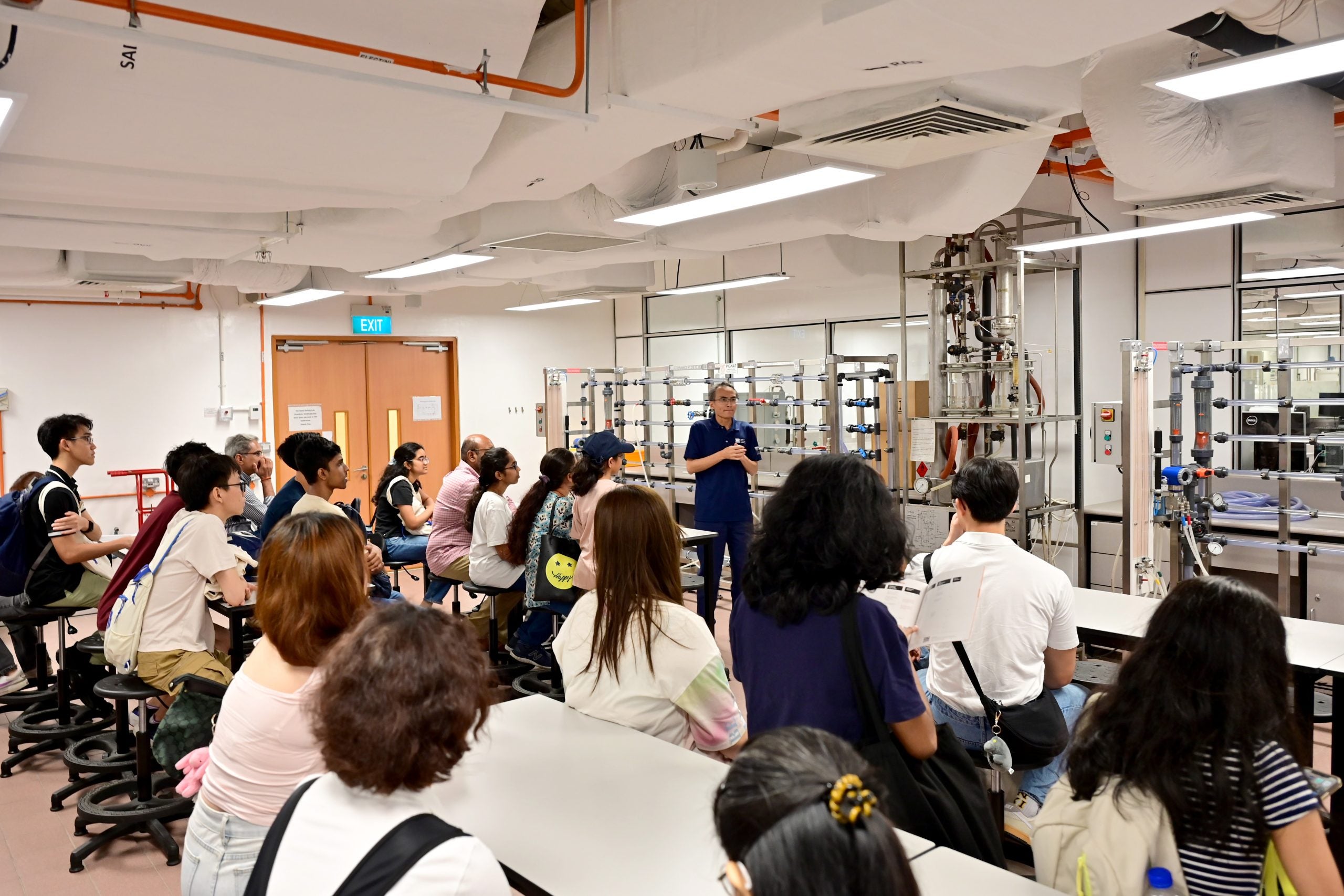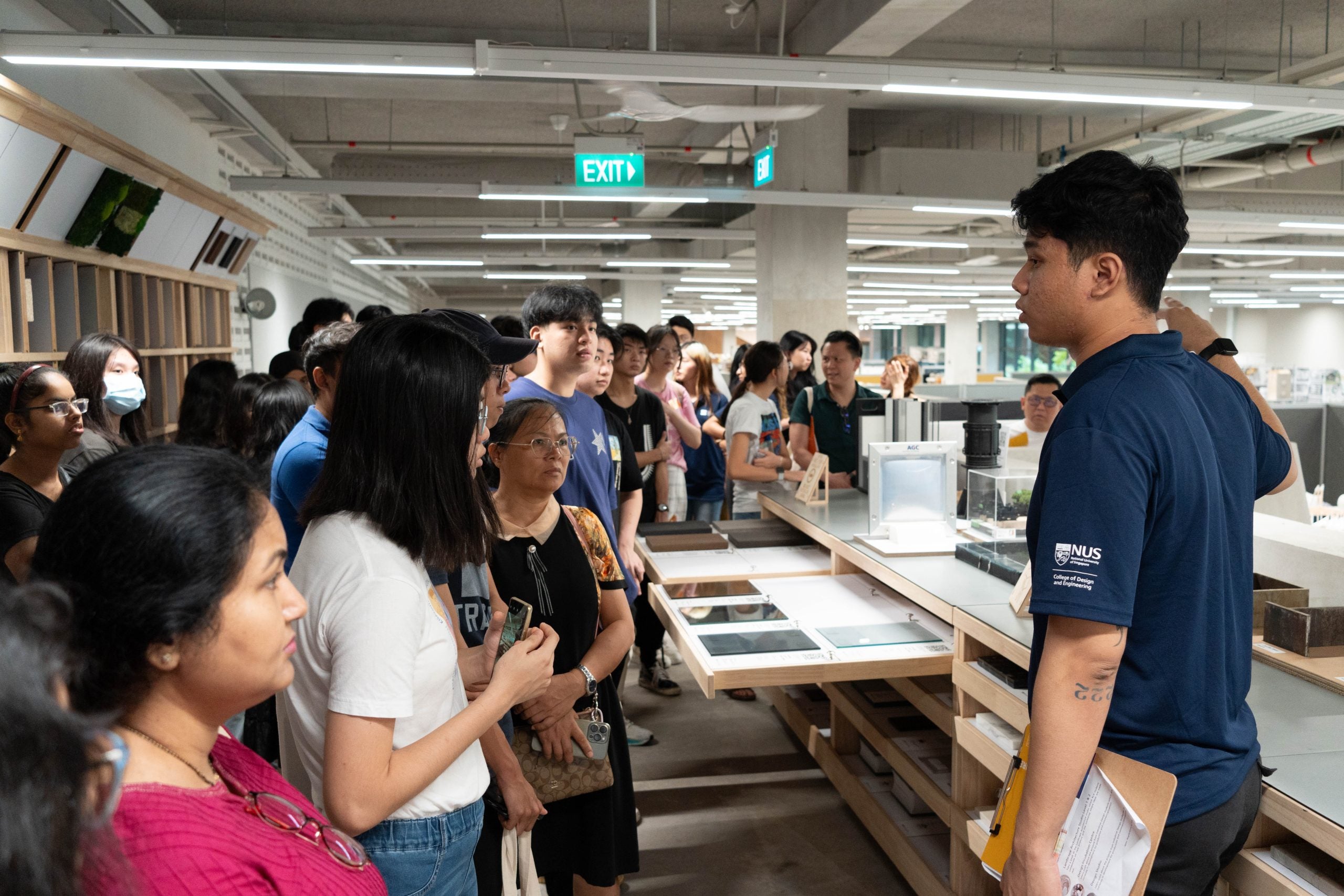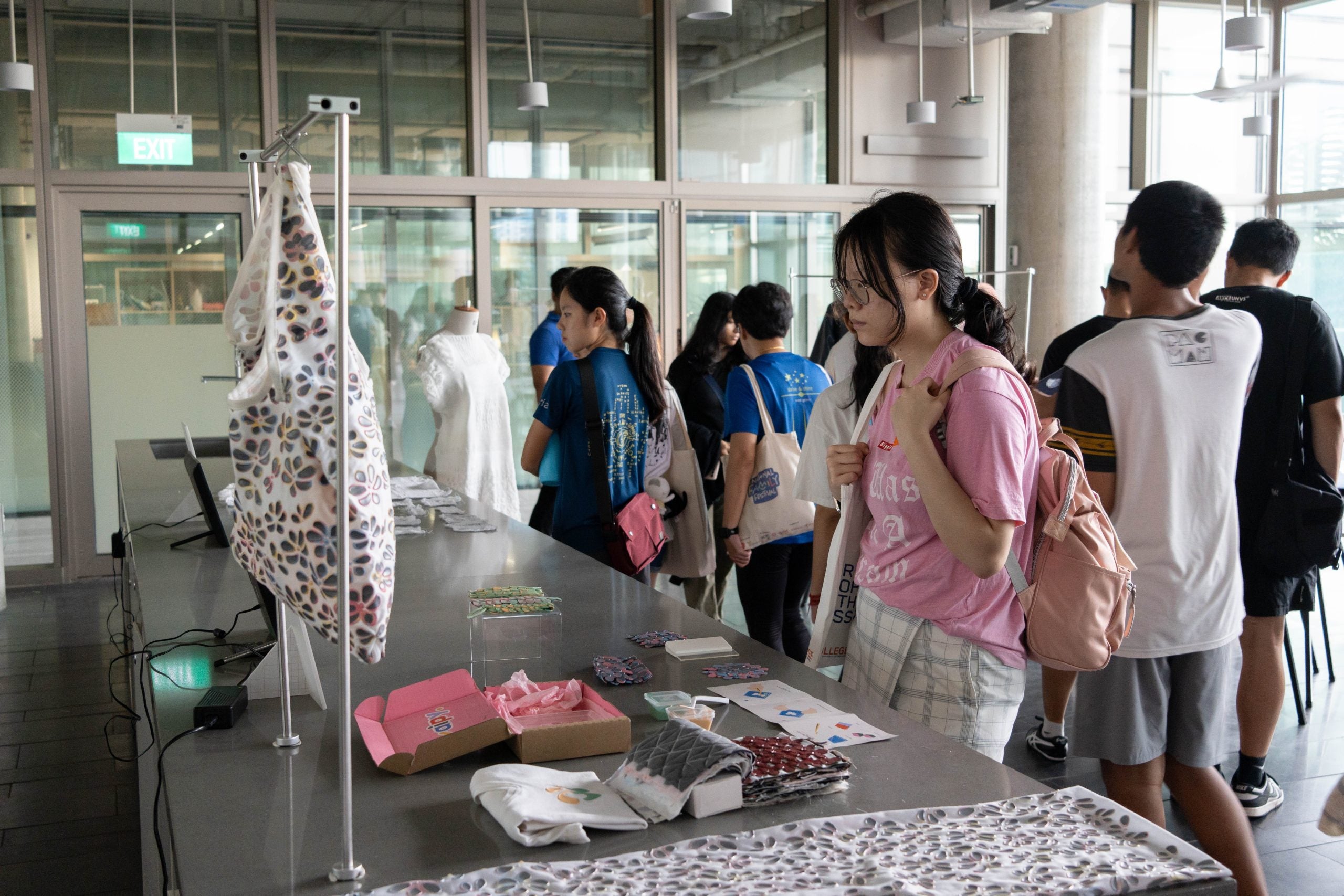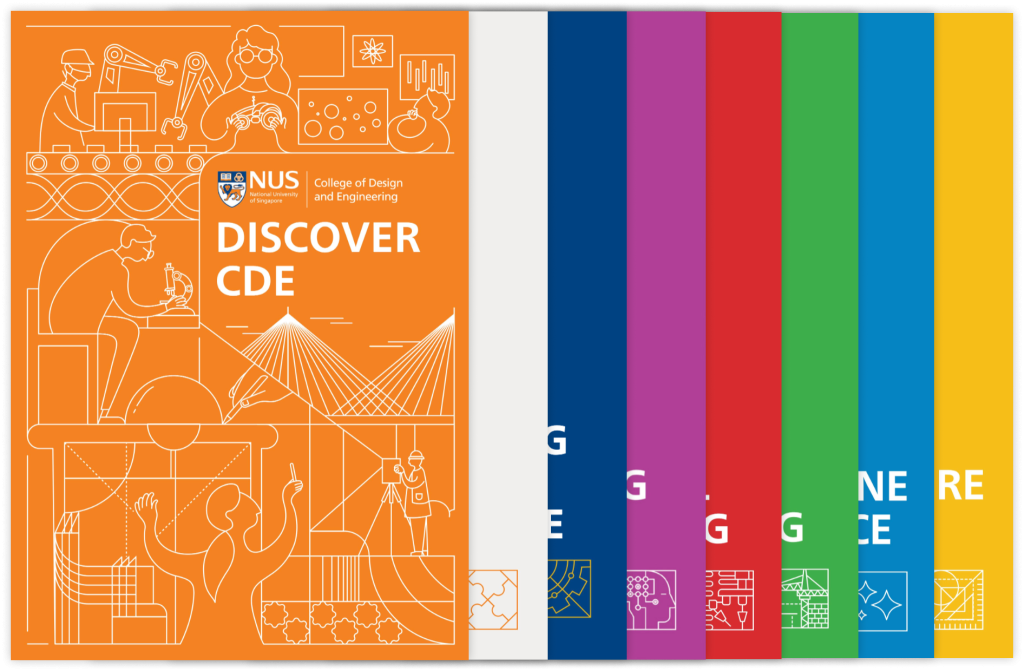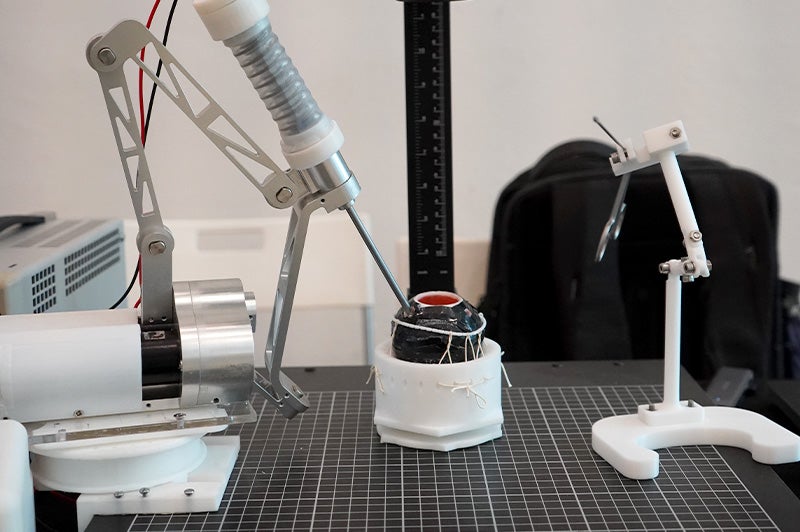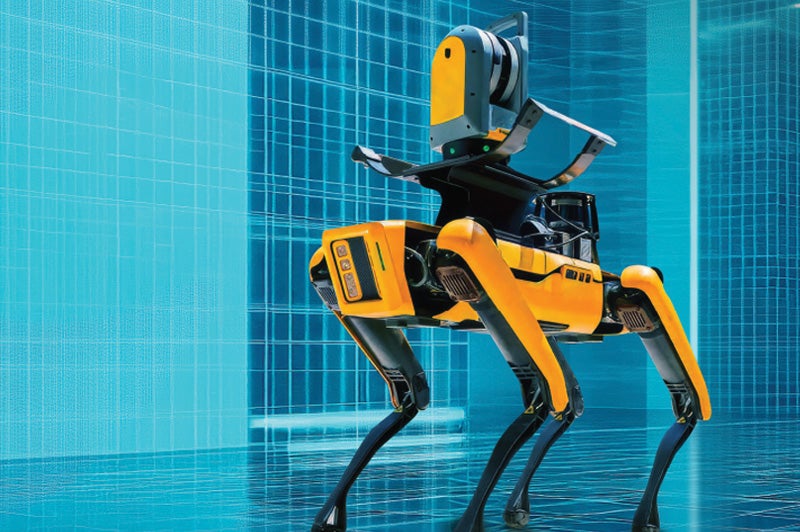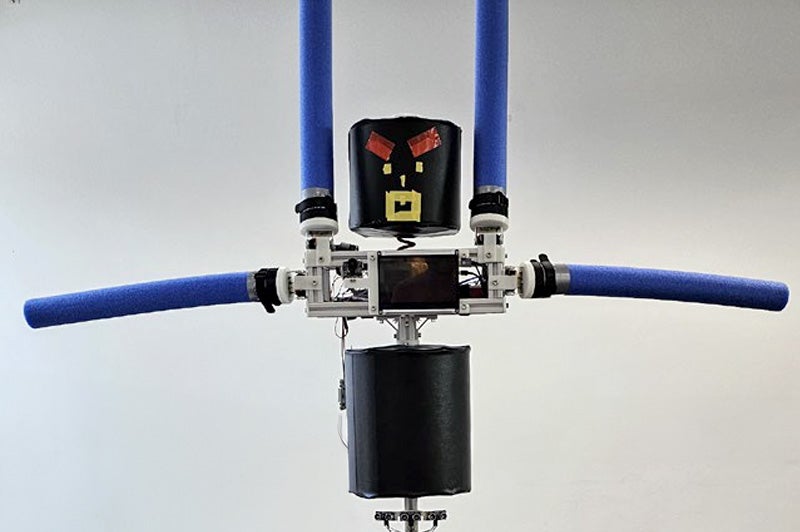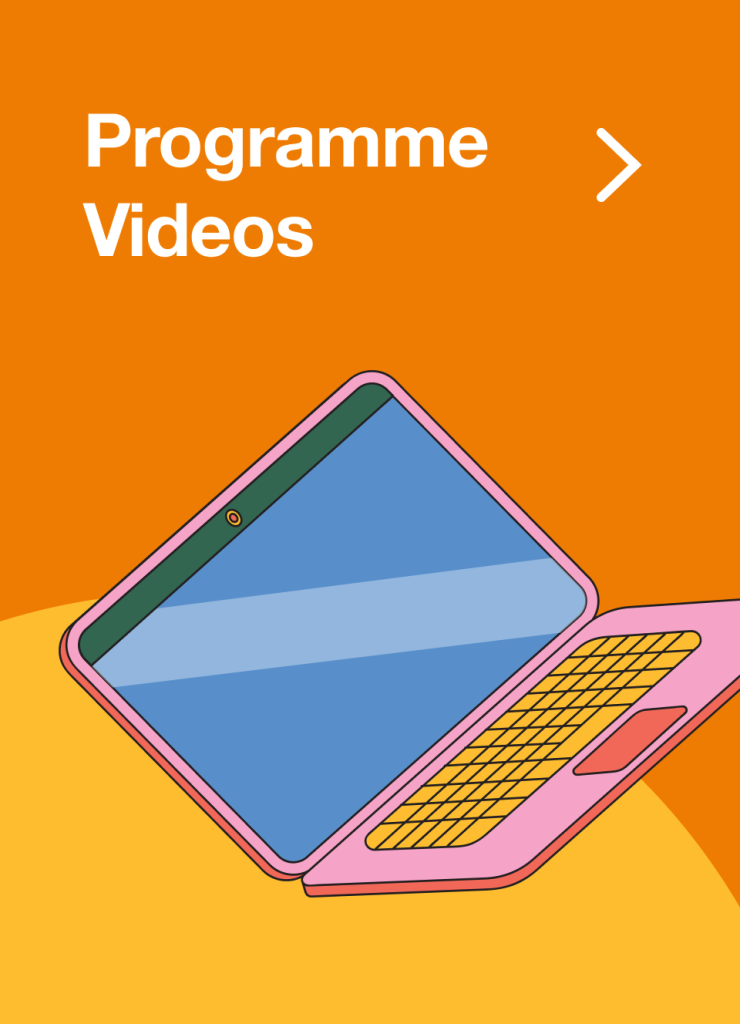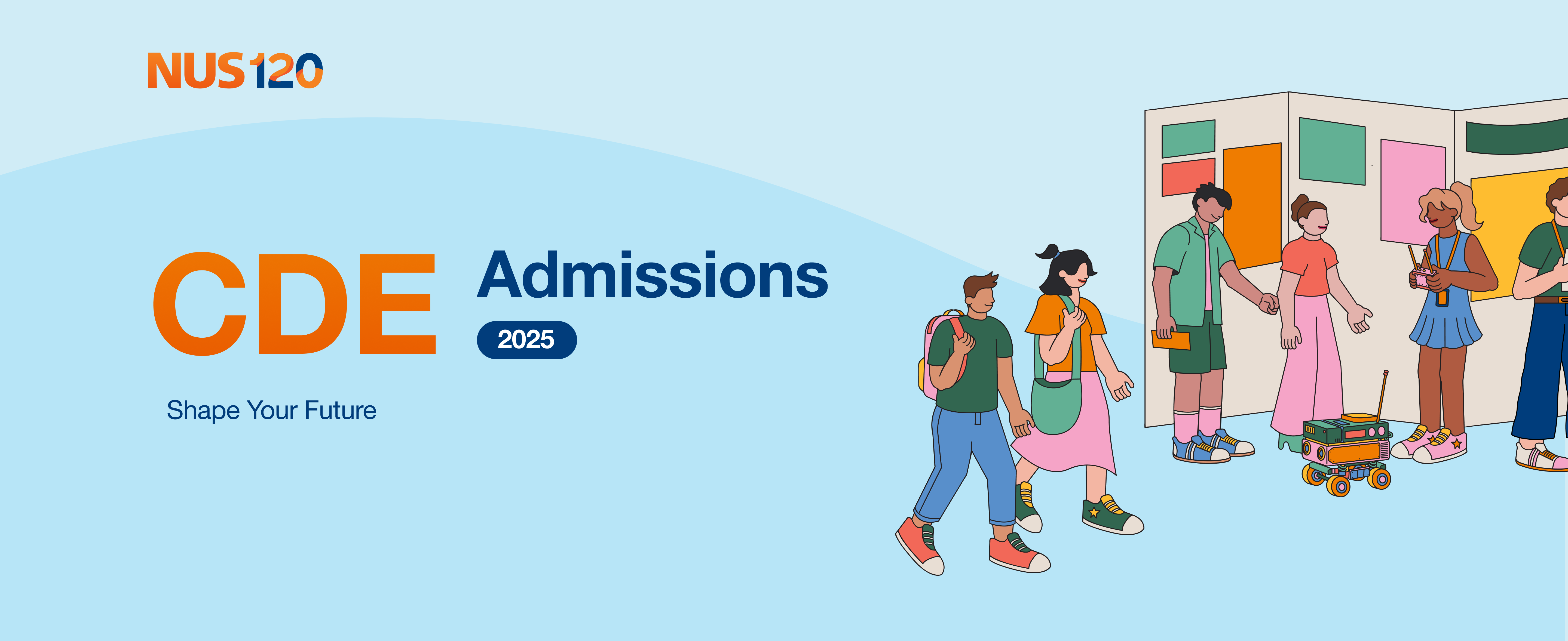
Explore CDE
What's New at CDE

Robotics and Machine Intelligence (RMI) Programme
Robotics engineering integrates mechanical, electrical, and computer engineering with data science and artificial intelligence. This expertise prepares you for careers in robotics, automation, testing, and controls across diverse industries such as defence, manufacturing, logistics, healthcare, and consumer electronics.

NUS AI Talent Scholarship
Awarded to high calibre individuals who are enthusiastic about artificial intelligence (AI) and intend to eventually build a career in the AI industry, pursue research in AI, or become an entrepreneur related to AI. Eligible for students applying for admission to a full-time undergraduate degree programme in Artificial Intelligence, Computer Science, Business Artificial Intelligence Systems, or Robotics and Machine Intelligence at NUS.
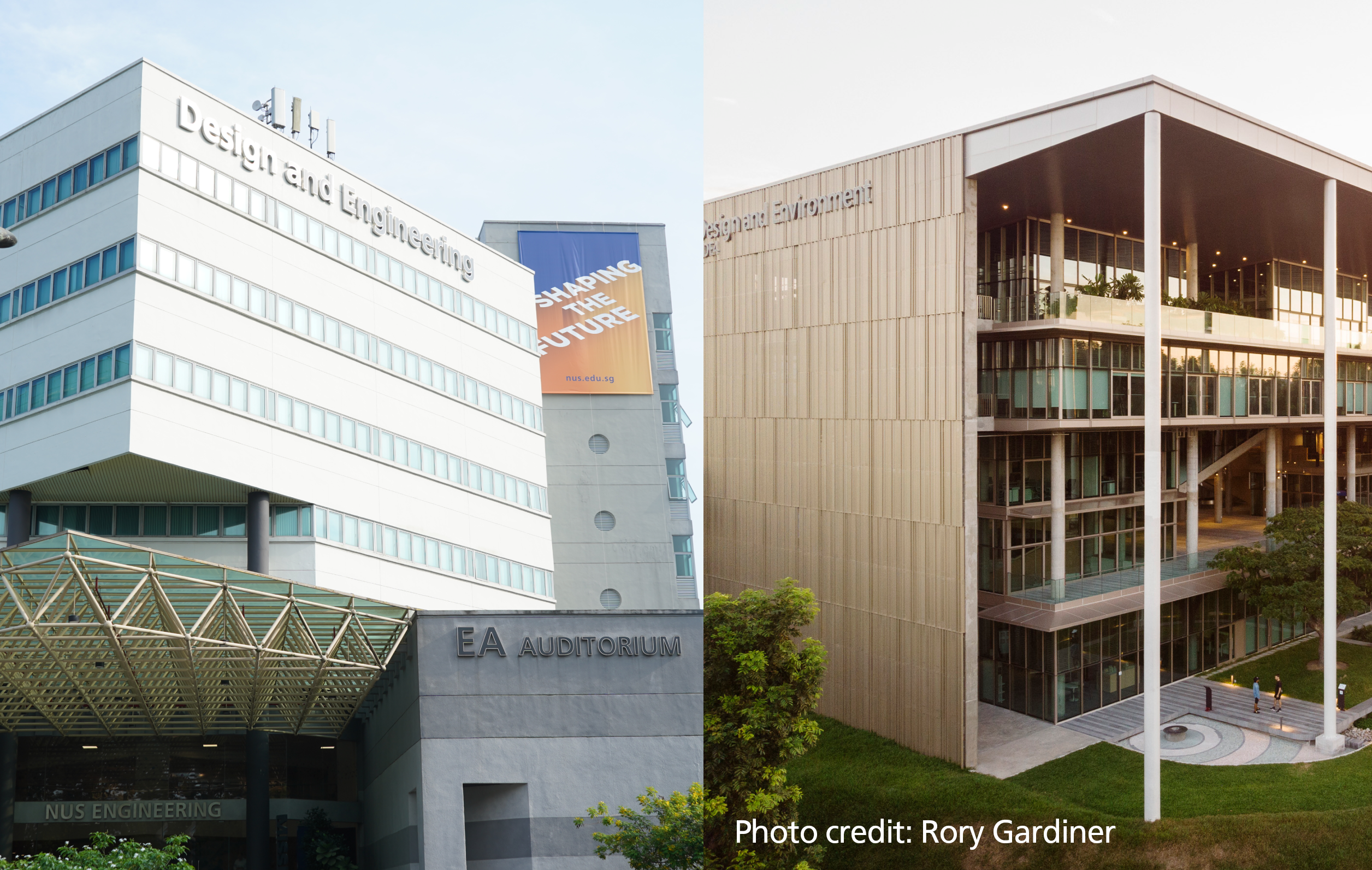
Double Degree Programmes (DDP) within CDE
A DDP within CDE enables students to widen their knowledge and skills in design and/or engineering, and build a stronger foundation to undertake multidisciplinary specialisations within CDE that require knowledge from different disciplines.
Welcome to CDE!
Welcome to the College of Design and Engineering — a vibrant hub where creativity meets innovation, shaping the educational journey of tomorrow!
Discover Our Programmes
Here at CDE, we offer 15 undergraduate degree programmes spanning Design, Architecture, and Engineering. Each programme is carefully crafted to cater to the diverse passions and ambitions of our students, setting you on a path to fulfil your academic and professional dreams.
Scholars Programmes
Second Majors
Minors & Specialisations
Career Prospects
Exposure to real-world scenarios, broad domain expertise and cutting-edge research in your university education will empower you to thrive in your future professional roles. You will be equipped with a range of versatile and transferable skill sets for enhanced career prospects and the potential to explore a wider variety of roles.
Click to expand and discover the possible combinations you can take to personalise your own journey!

Relive the events from our Open House weekend!
Innovation & Impact Hub NUS120
View innovative projects from CDE, featuring BARC, NUS Formula SAE and HOPES!
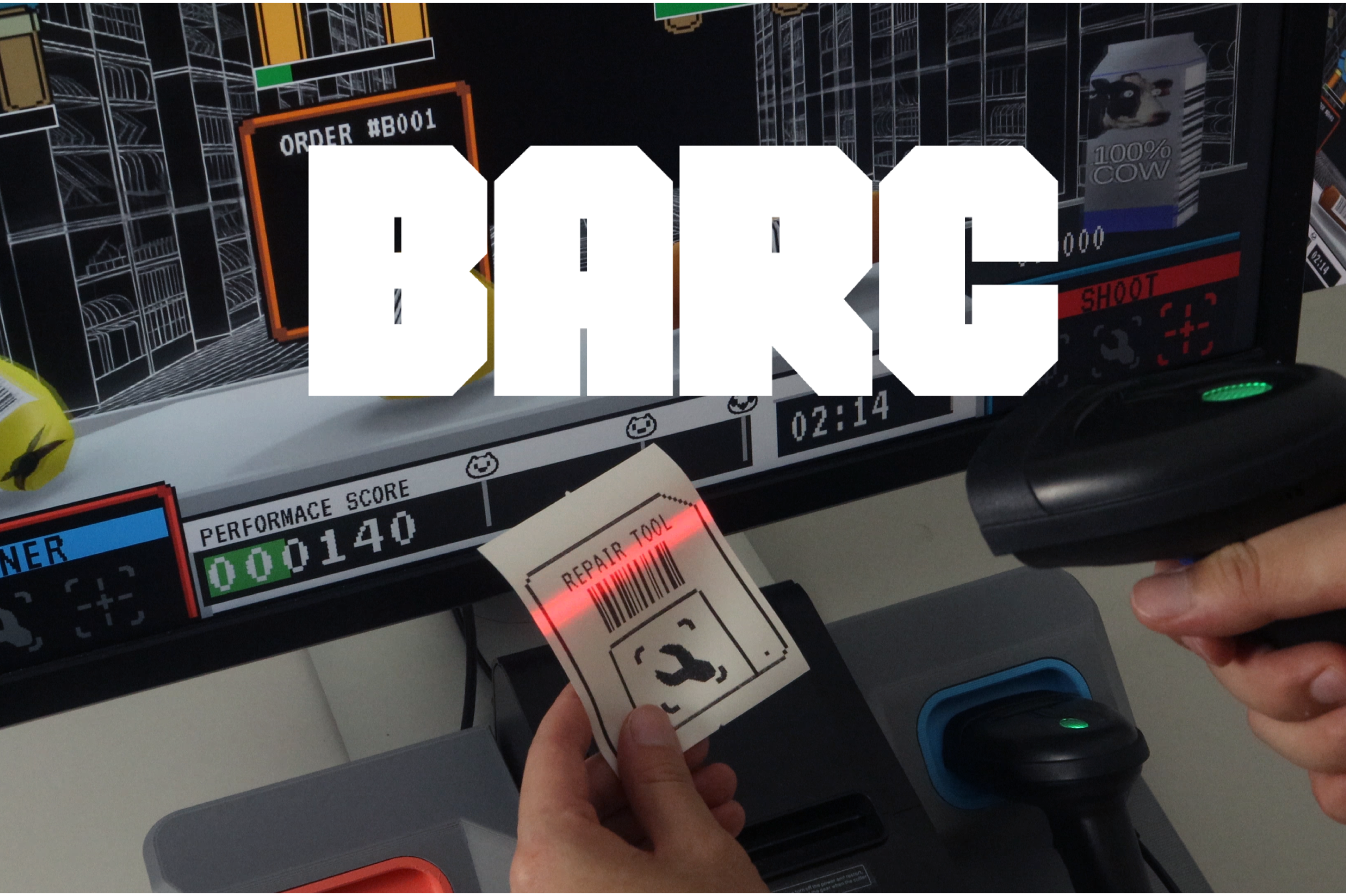
BARC
Industrial Design
BARC is an alternative control video game that utilises the concept of barcode scanning and receipt printing. BARC was shortlisted and showcased at Alt.Ctrl.GDC 2024 in San Francisco, an event that's a part of the Game Developers Conference (GDC). The game garnered great reception from the games industry and event attendees alike.
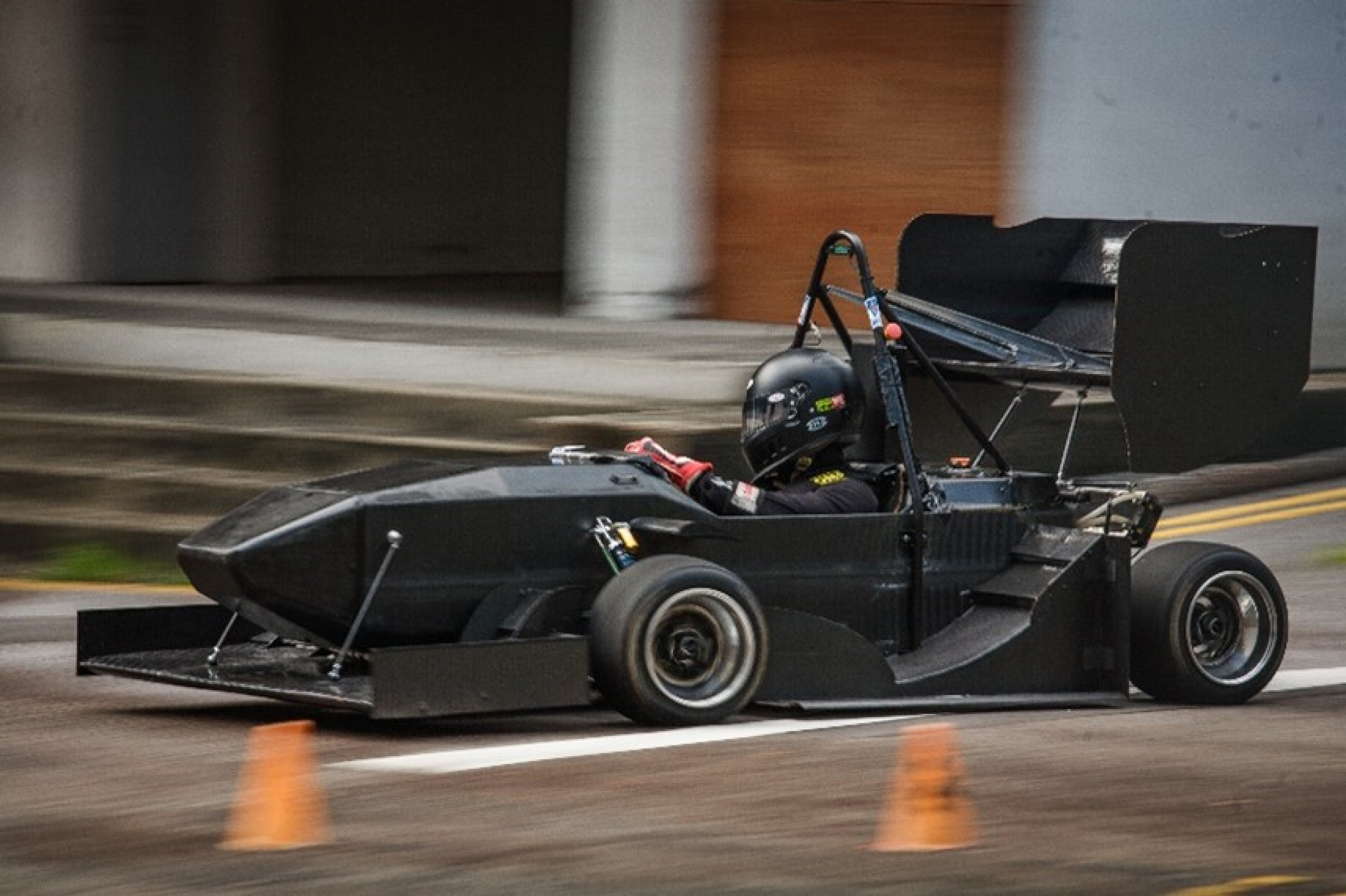
NUS Formula SAE
Engineering Design & Innovation Centre
The NUS Formula SAE race car project was started in 2001, when a group of enterprising third year engineering students dreamed of building a race car to participate in the intervarsity FSAE competition, held every May in Michigan, USA. The project has evolved into an important educational component and now comes under the umbrella of the Engineering Design and Innovation Centre (EDIC) which is overseen by CDE, NUS.

Home Eye E-skin Pressure Sensor (HOPES)
Materials Science and Engineering
Home Eye Pressure E-skin Sensor (HOPES) is a wearable device that is designed for safe, accurate, pain-free and low-cost intraocular pressure (IOP). The design combines an electronic skin (e-skin) sensor technology and artificial intelligence (AI) to allow glaucoma patients to self-monitor their IOP at home. HOPES is developed by Yu Kelu and Li Si, who are PhD students from Materials Science and Engineering, CDE, NUS and Institute for Health Innovation & Technology, as well as David Lee, a Research Engineer at Materials Science and Engineering, CDE, NUS.
Robotics Fair
Learn more about robotics at CDE and immerse yourself in a world where creativity, innovation and technology converge to redefine what's possible.

Explore the vast selection of undergraduate degree programmes offered by the College of Design and Engineering (CDE), NUS, introduced by our coolest professors. Learn from our students about the vibrant campus life, and explore our campus virtually, curated online just for you!
Frequently Asked Questions (FAQ)
Getting into CDE
Our direct admissions degree programmes are Architecture, Computer Engineering, Industrial Design and Landscape Architecture. Each of these has its own admissions requirements and admission standards. Our common admissions “Engineering” programme, as the name suggests, has a common set of entry requirements and a single admissions standard. If you are admitted to Engineering you have access to any one of the 11 majors (degrees) in the common admissions pool: Biomedical Engineering, Chemical Engineering, Civil Engineering, Electrical Engineering, Engineering Science, Environmental and Sustainability Engineering, Industrial and Systems Engineering, Infrastructure and Project Management, Materials Science and Engineering, Mechanical Engineering, Robotics and Machine Intelligence; which one you choose is up to you.
No. The only pre-requisite for the Engineering programme is mathematics. For Singapore-Cambridge GCE ‘A’ level applicants we require H2 Mathematics and we have equivalent requirements for those with other qualifications. Although physics is not an admission requirement, those without H2 Physics (or equivalent) may be asked to take a bridging course to prepare for higher-level courses that require this knowledge.
Shortlisted applicants for all three degree programmes will be required to attend an interview as part of the selection process to be considered for admission. The interview for Architecture or Landscape Architecture also requires applicants to bring along a portfolio showcasing the applicant’s creative work. For Industrial Design, a portfolio is not required. However, it is advisable to bring along a portfolio (or any creative material such as photographs, drawings, paintings, making hobbies, etc.) for the interview.
Yes. We call this “Aptitude-Based Admissions”. CDE will consider your achievements beyond your academic grades. These could be anything from work experience, leadership, community service, entrepreneurship, Olympiads or other competitions, sporting achievements or anything else you have achieved that you think we should know about.
The University provides prospective applicants with detailed information on grade profiles and programme availability, facilitating a well-informed application process. For more information, we encourage you to refer to the NUS Indicative Grade Profiles.
Polytechnic diploma holders admitted to a three or four year programme may be granted advanced credits (APC) in relevant courses for up to a maximum of 40 units. 40 units is equivalent to one year of study. The breakdown of the advanced placement credits (with effect from AY2015/2016 onwards) are as follows:
- Up to 20 placement units for Unrestricted Elective courses; and
- Up to 20 units for programme requirements
Click here for more information.
Choosing your Major
If you choose one of our direct admissions major that choice is made when you submit your application. If you choose our common admissions “Engineering”, you will have the opportunity to choose your major at the point of application (called “preferred major” in the admissions portal). If you have yet to decide which Engineering major is for you, you can select “Major to be Decided” at the point of application.
Yes. If you are admitted to the Engineering common admissions programme you can choose any one of those 11 majors. We will give you a place in your choice of major. There are no internal quotas; you will be placed where you want to go.
For the Engineering common admission courses, you can re-declare your major up until your fourth semester of study. For the direct admission courses, you can apply for a transfer in February and October each year.
Applying for Scholarships and Financial Aid
The most common scholarships are our Engineering Scholars Programme, Design Scholars Programme, the NUS Global Merit Scholarship and the NUS Merit Scholarship. There are also NUS Scholarships for those who excel in sports and performing & visual arts. Apart from NUS Scholarships, there are also donated scholarships and other scholarships administered by NUS and that are funded by external organisations.
Application for NUS Scholarships should be made at the same time as application for admission to NUS. You should use the same application number and admission PIN.
Building your CDE Degree
An education at CDE will be an exciting, interdisciplinary experience for students where their learning journey takes centre stage. We are equipping students with an adaptable toolbox of skills across disciplines, moving them beyond a knowledge-based education to a mindset based approach to problem-solving. The CDE common curriculum provides a broad intellectual foundation on which you can continuously upgrade, evolve and re-pivot in a fast-changing world. Our Majors build on top of the common curriculum to allow you to explore your chosen field, and our unrestricted elective space gives you the freedom to customise your educational experience.
Each of our undergraduate degrees is a four-year direct honours degree and you need an equivalent of 40 courses to graduate. Your major is your primary area of study, comprising 20 courses. The Common Curriculum accounts for another 10 courses. This leaves 10 courses in the Unrestricted Electives (UE) space that you can use to decide how broad, deep or integrated you want your education to be. You can choose what you want to take from anywhere at NUS. Second majors (10 courses) and minors (5 courses) allow you to broaden your knowledge and skills in a complementary or contrasting area. A specialisation (5 courses) is a focus area within your chosen discipline. Alternatively, you can choose from over 4000 courses available across NUS as electives based on your interest.
Planning your CDE Journey
Some courses under the Common Curriculum will be pre-allocated to students. Each programme also has a recommended curriculum schedule that students can use to plan the courses they need to take each semester. You may then ballot for the courses you want during the course registration exercise before each semester. The recommended schedule is available on each department’s website.
CDE and the wider NUS community offer a wide range of global opportunities and special programmes to enhance your learning experience such as the NUS Overseas Colleges, Residential Programmes, Student Exchange Programme and Summer/Winter Schools. Those interested in NUS College will be pleased to know it is compatible with all CDE degree programmes. Beyond academics, we have a vibrant College life and offer a wide range of activities from wellness workshops to cooking lessons. With NUS’ huge range of clubs and societies there is never a problem with finding your niche!
For any enquiries, you may contact us here.
Follow our social pages for all the latest updates!










